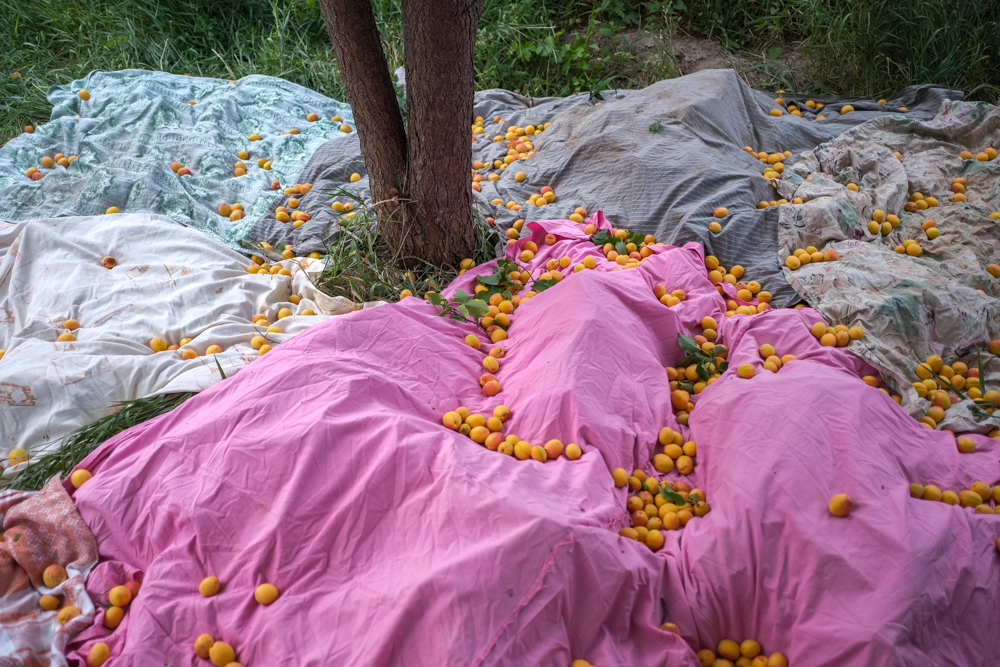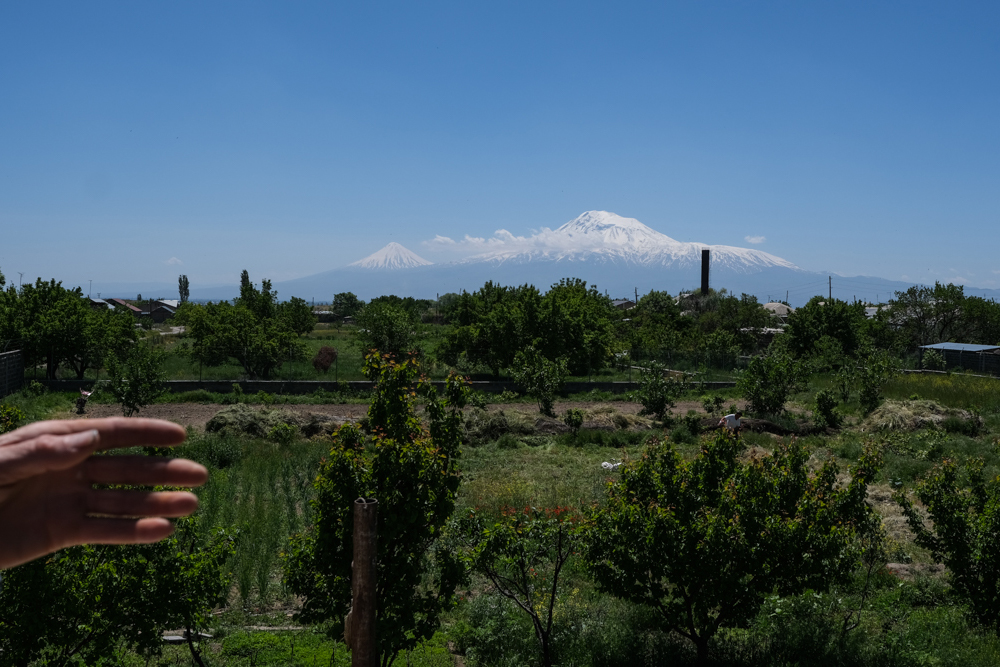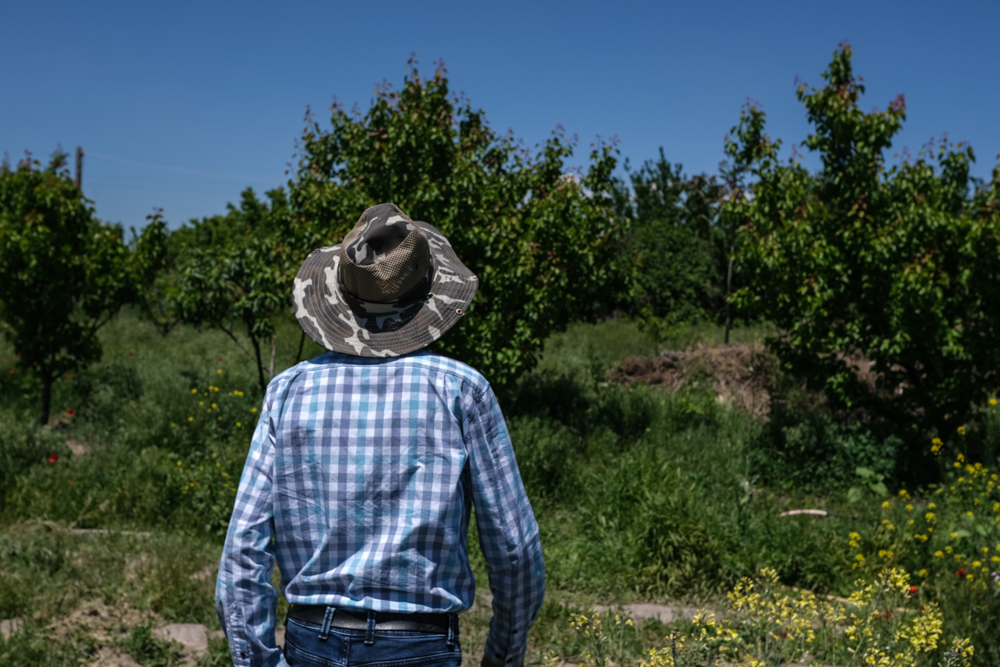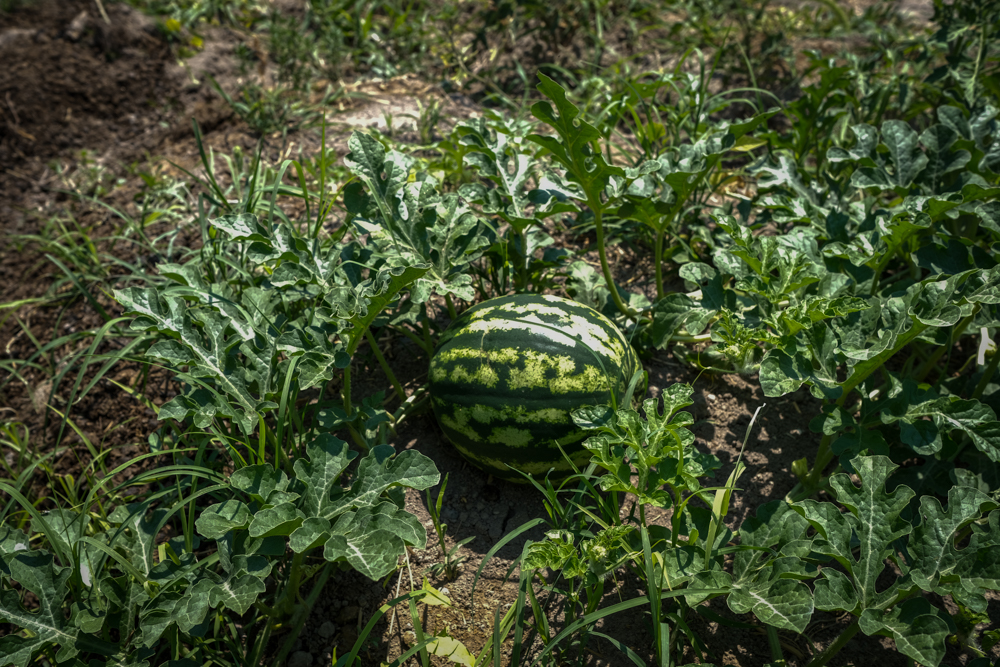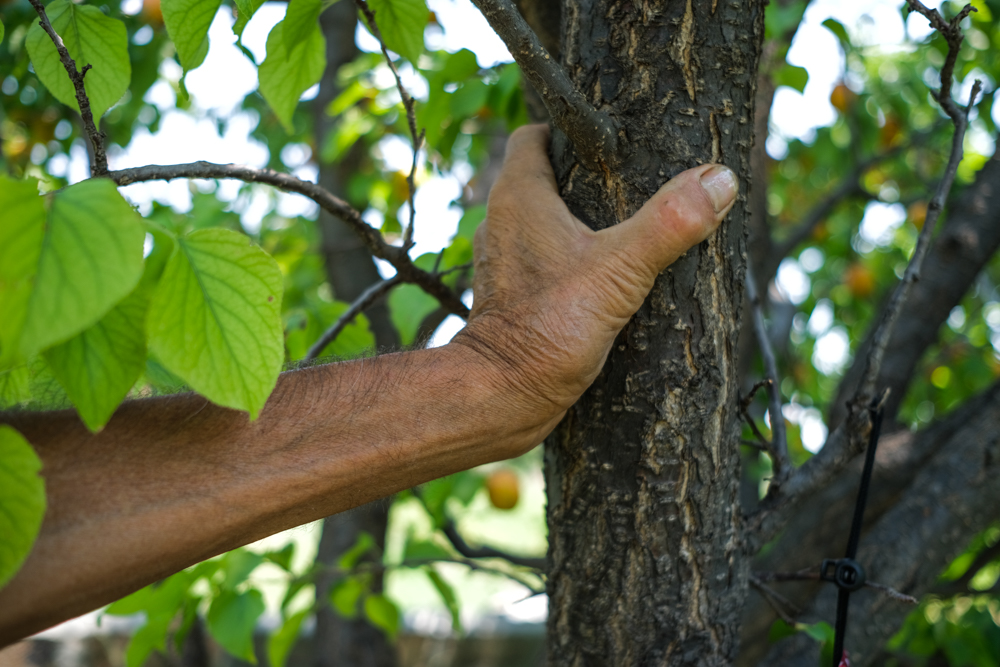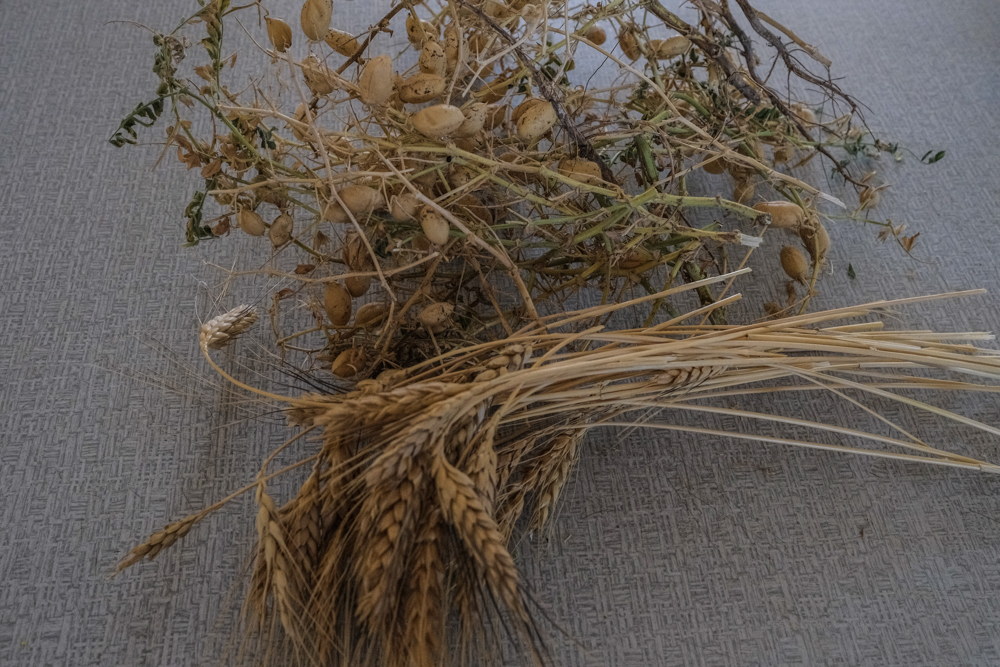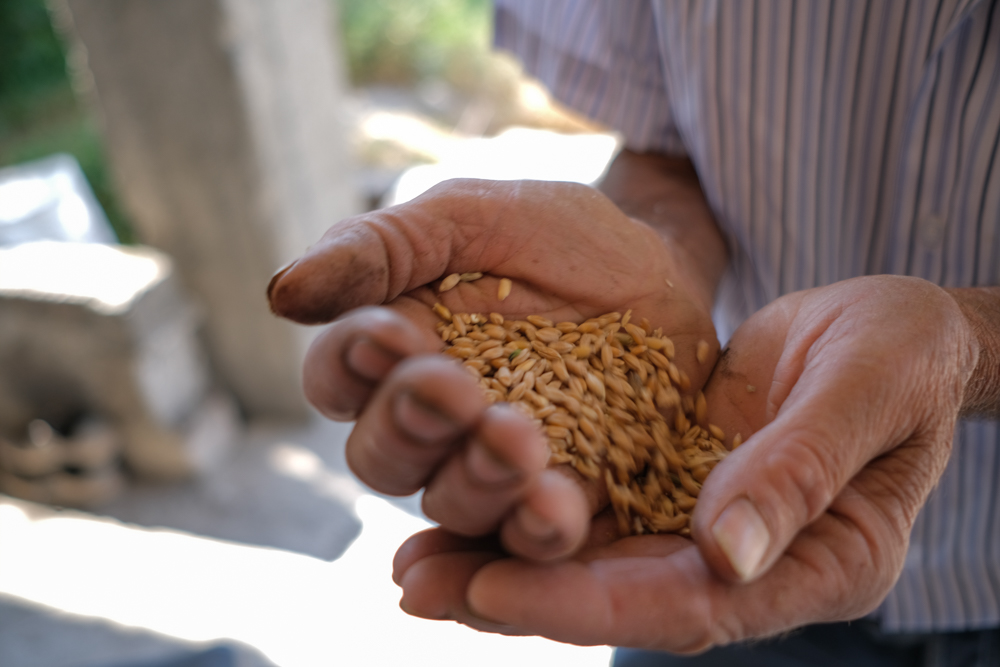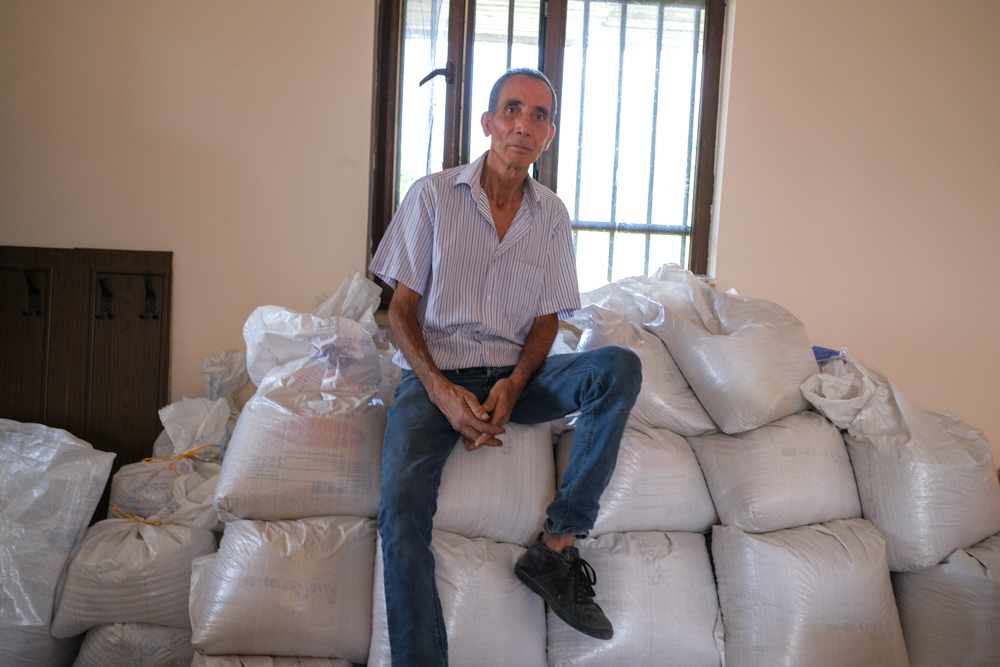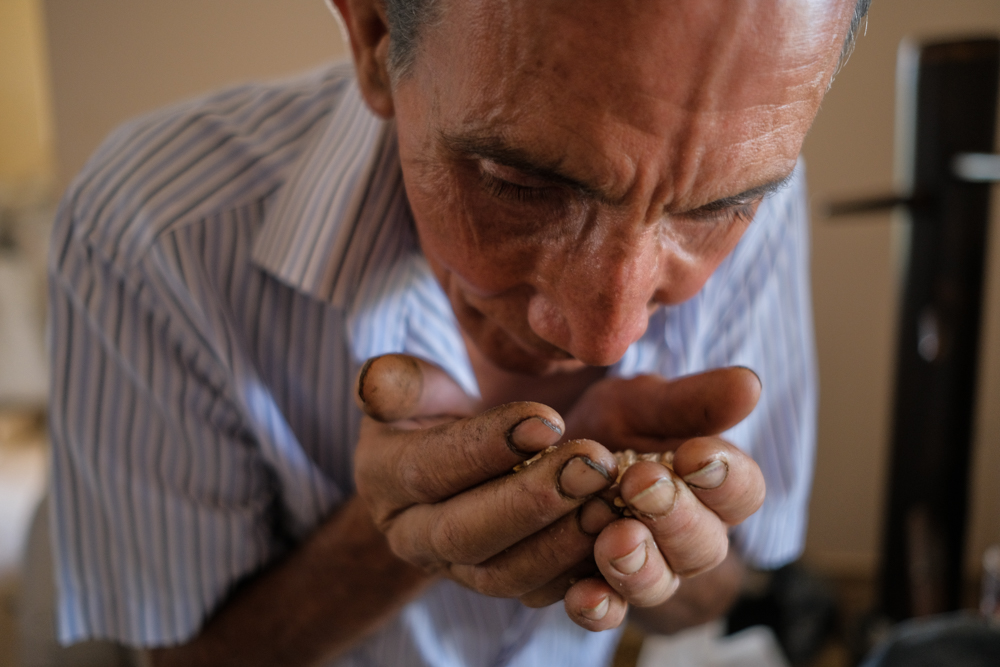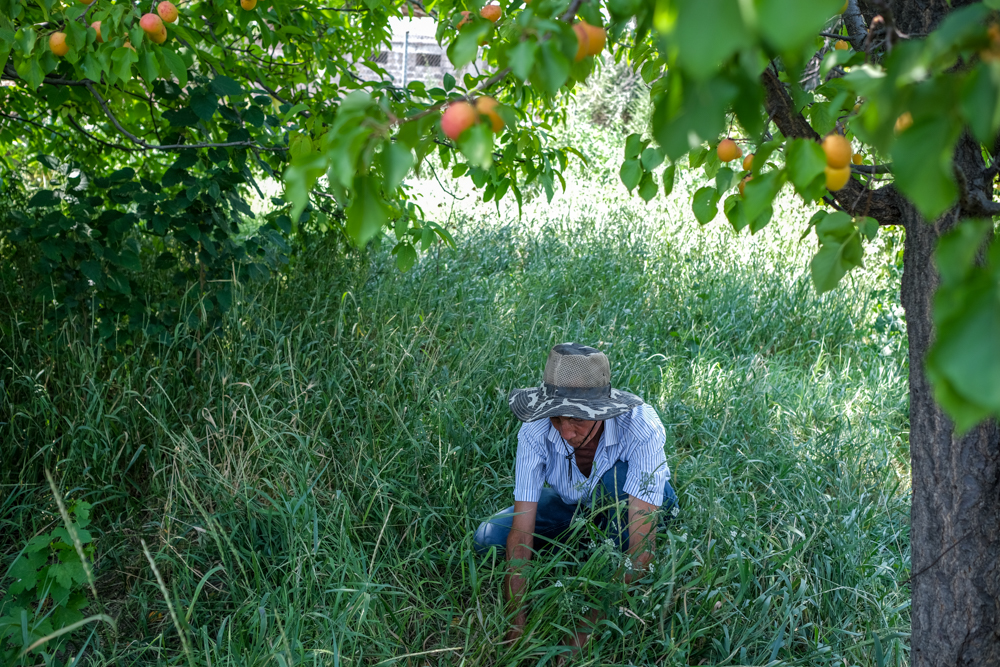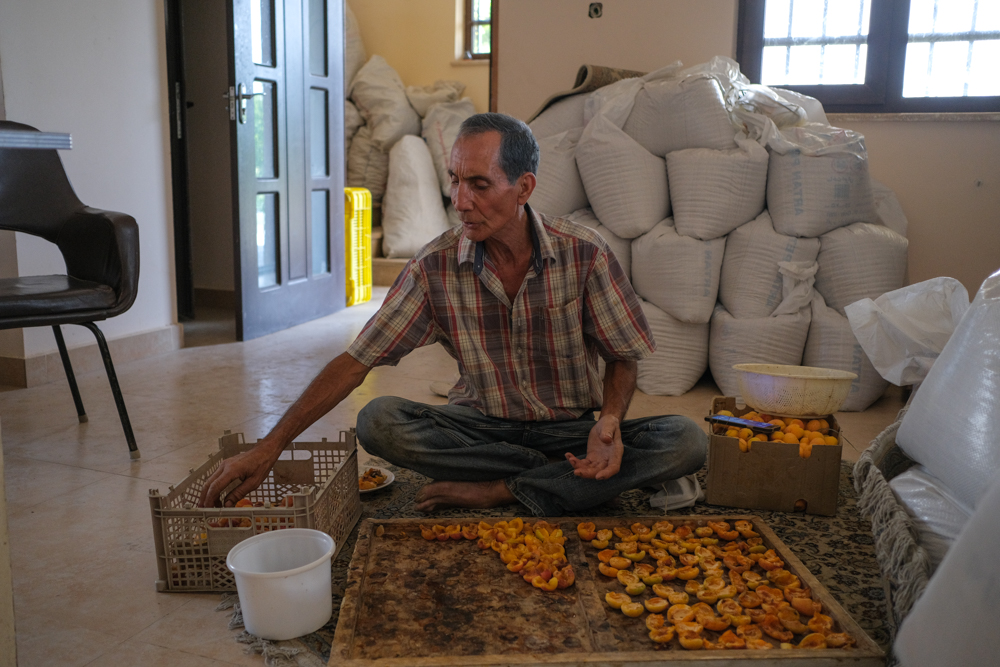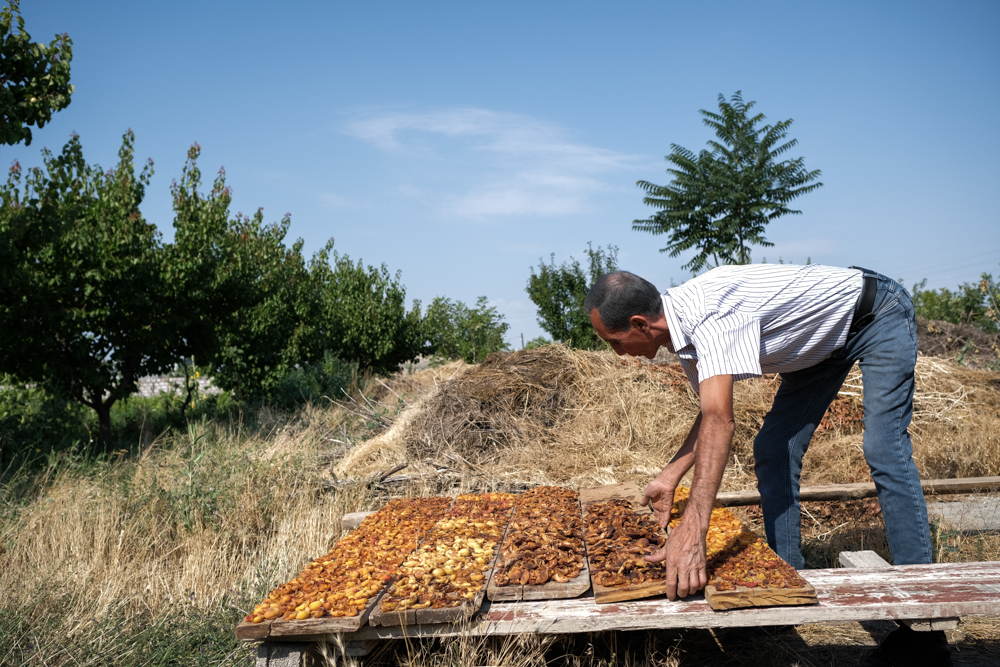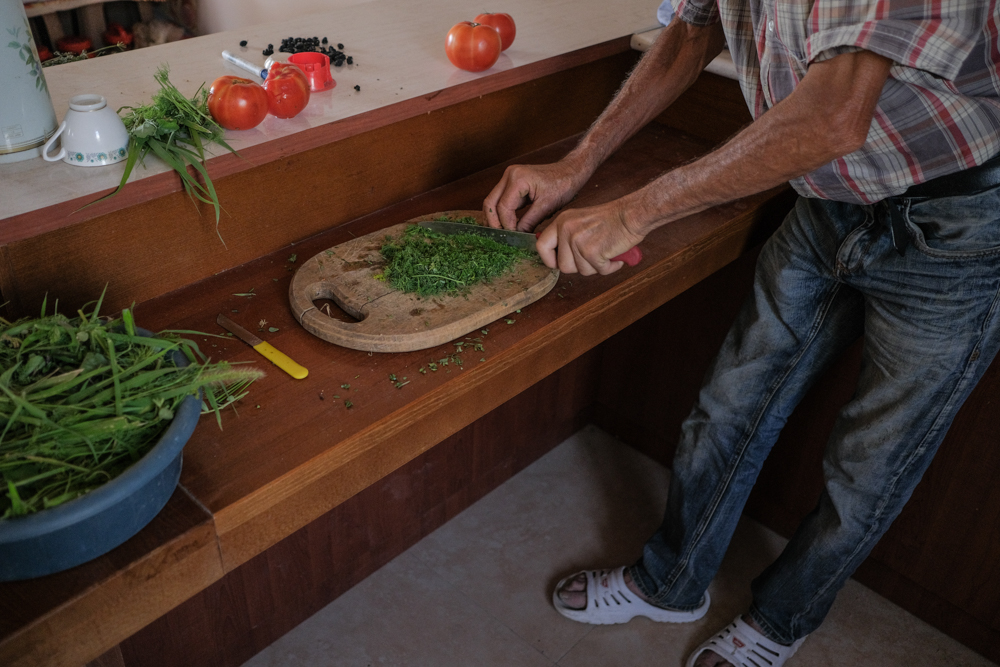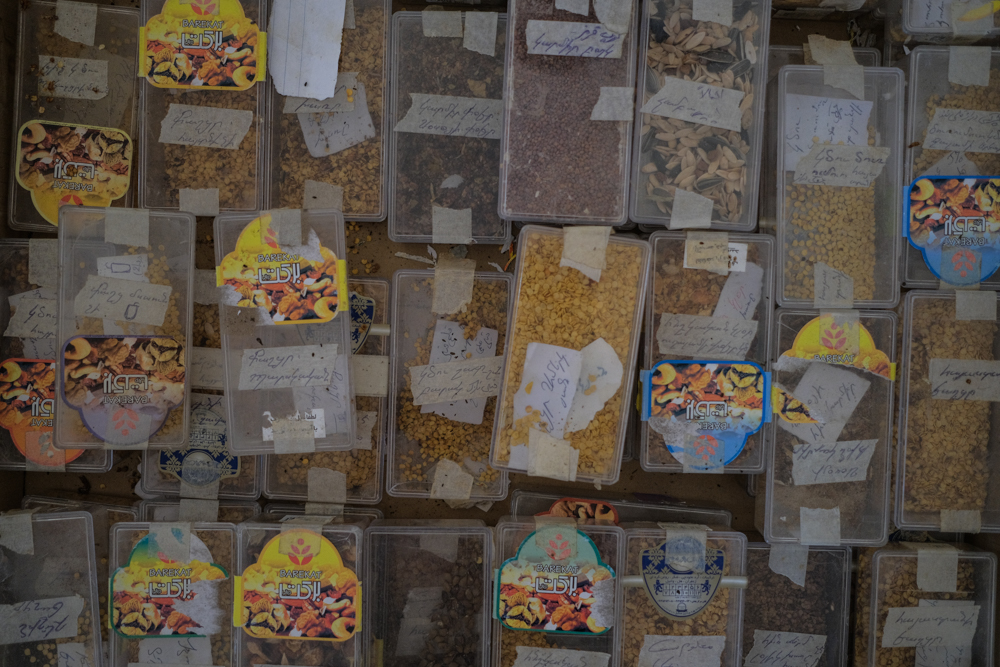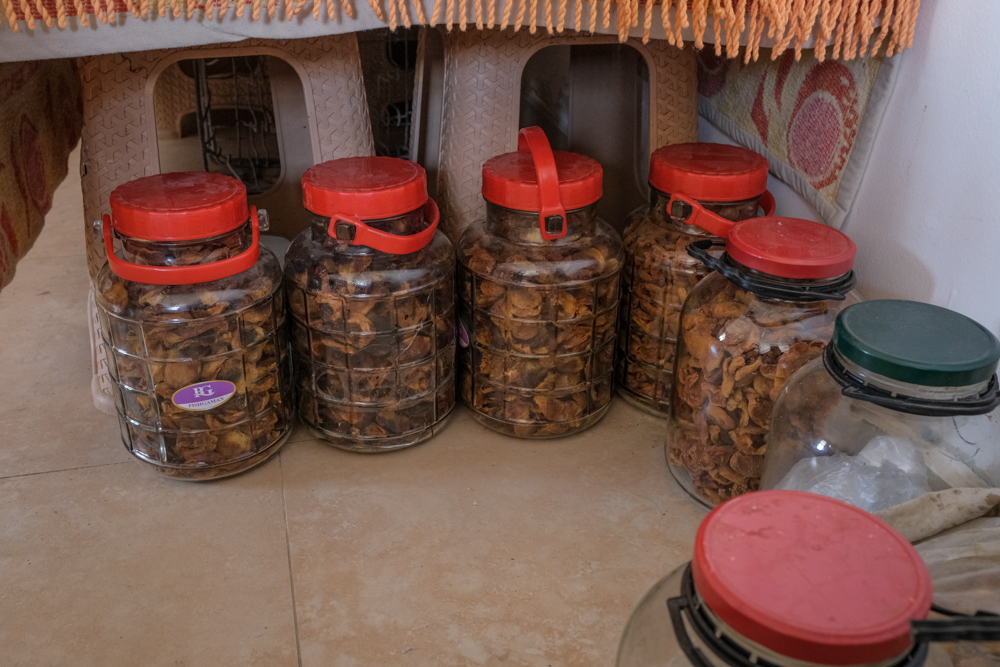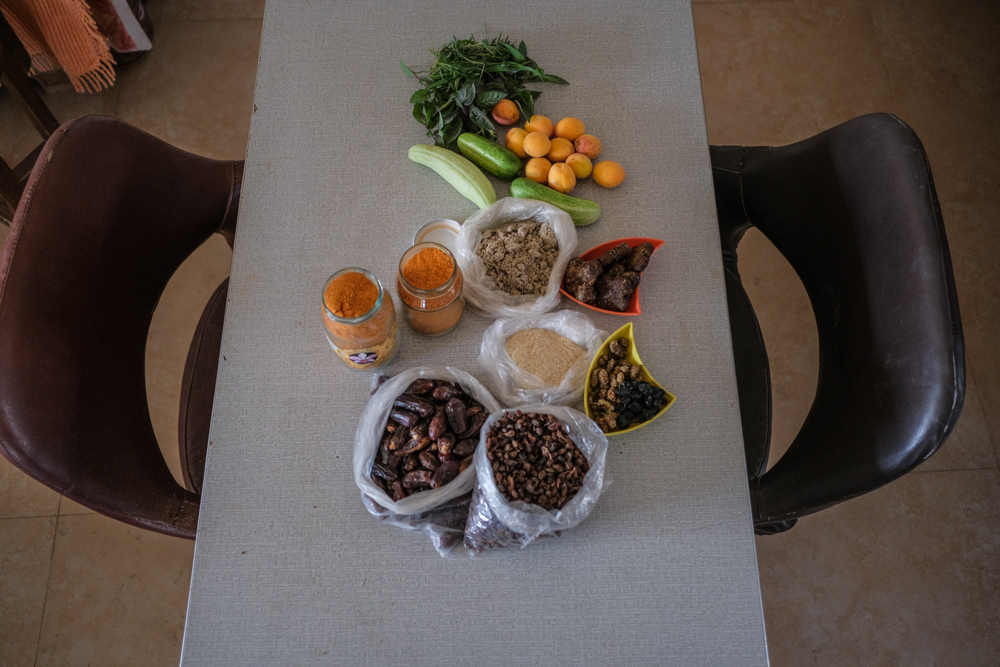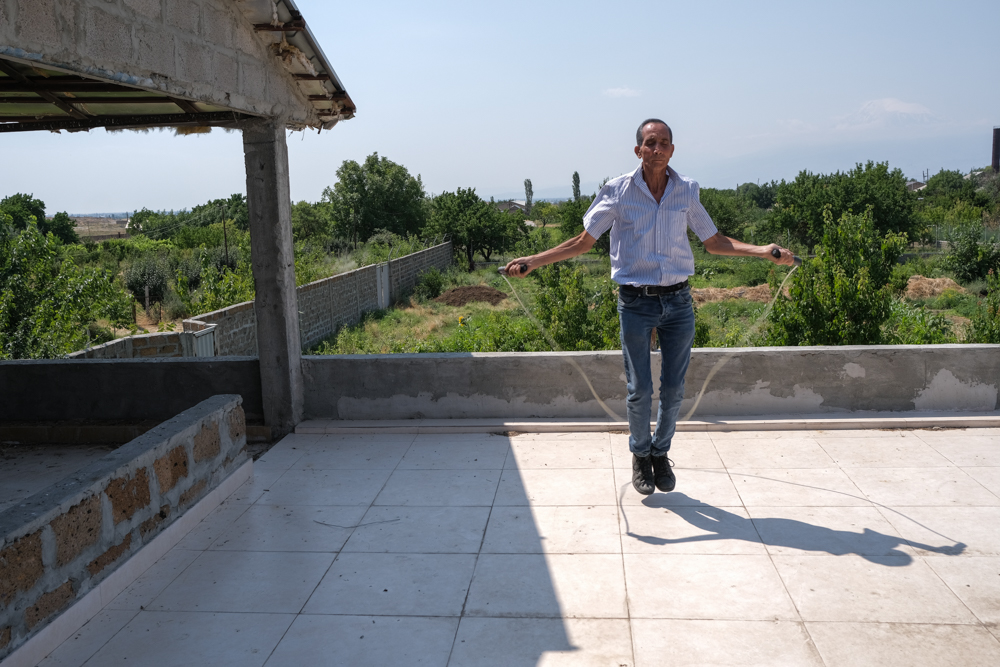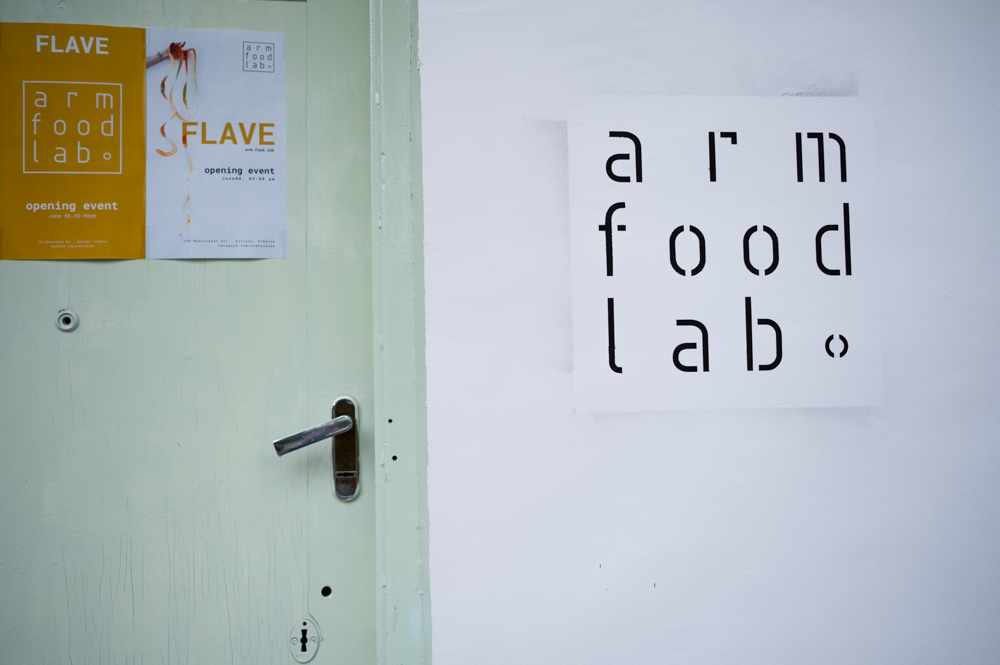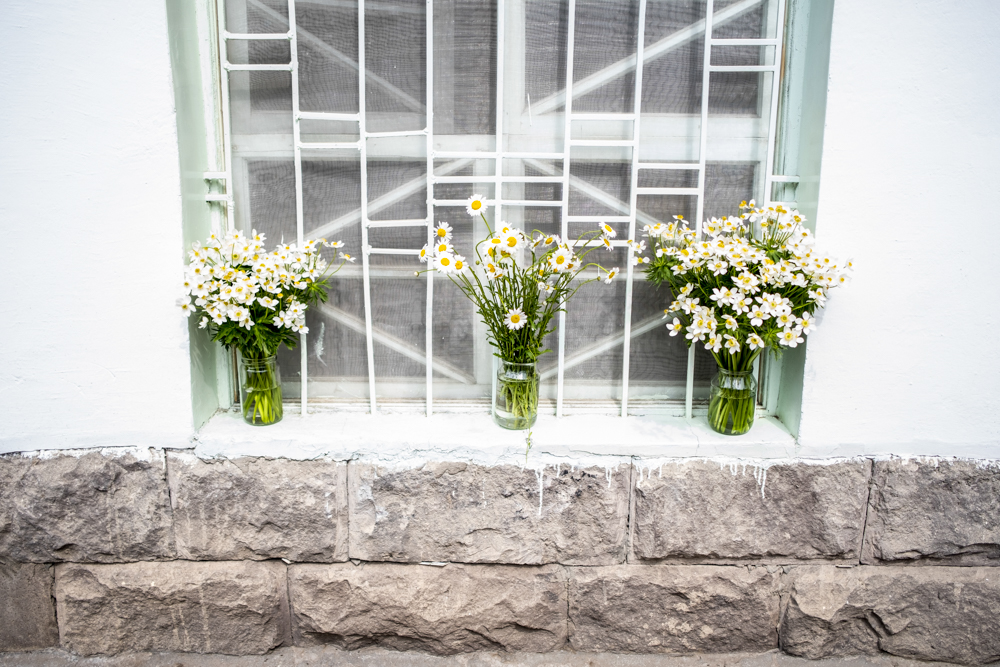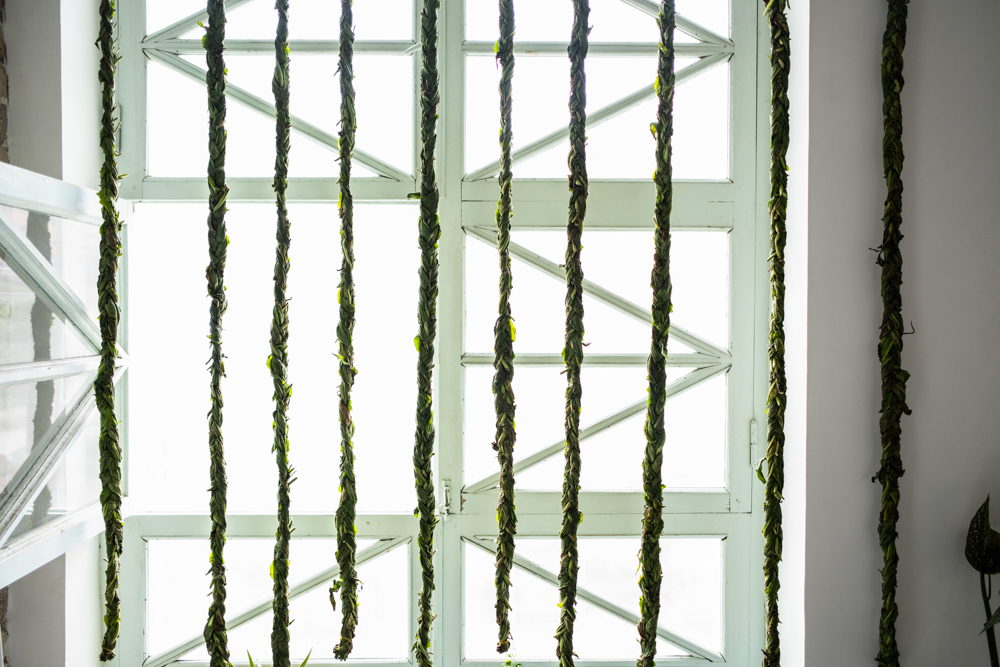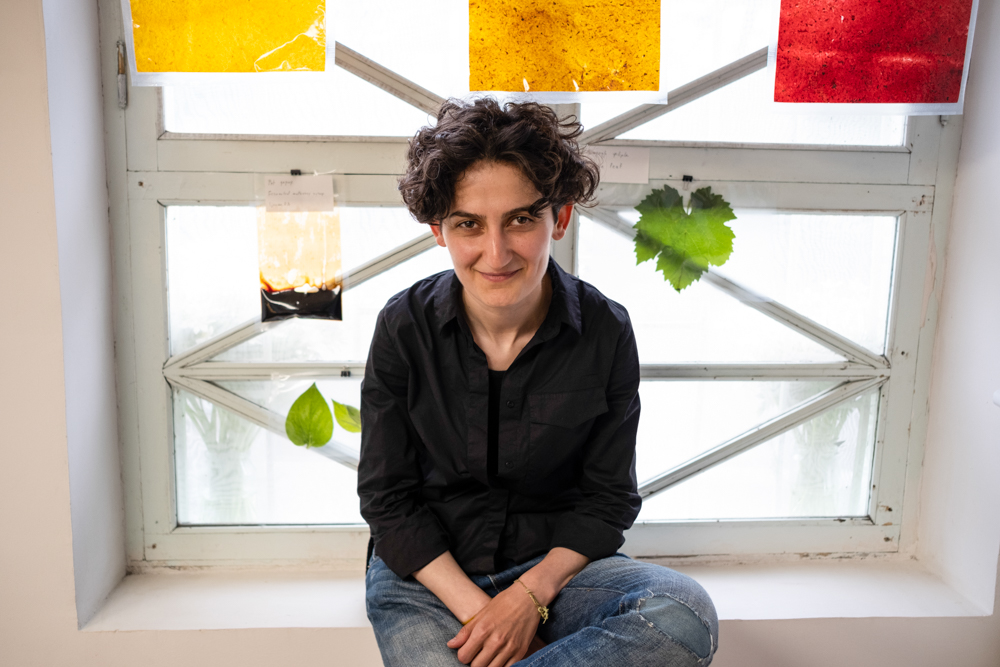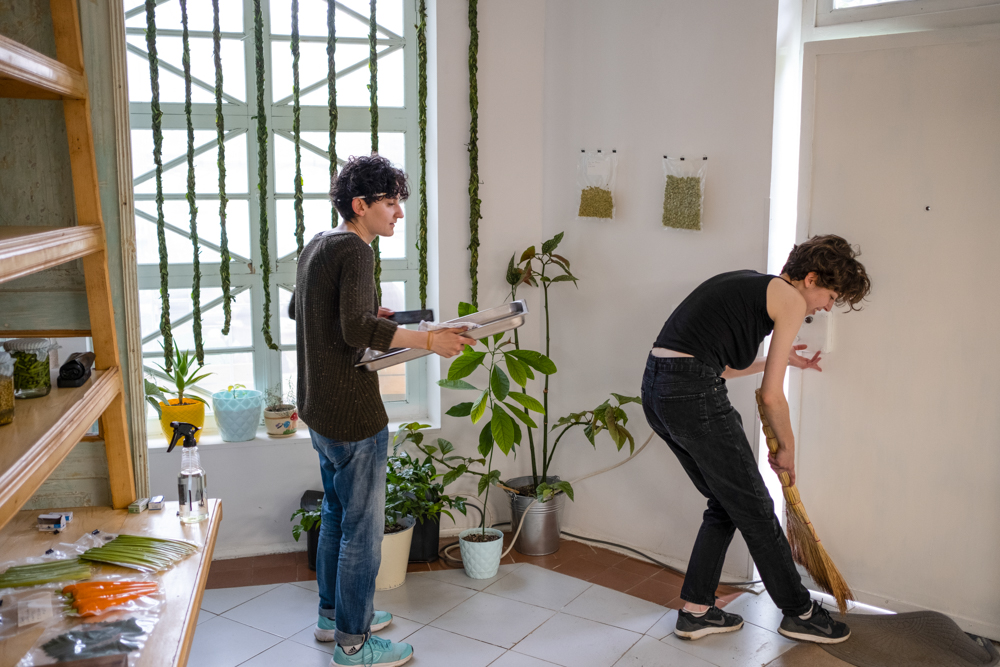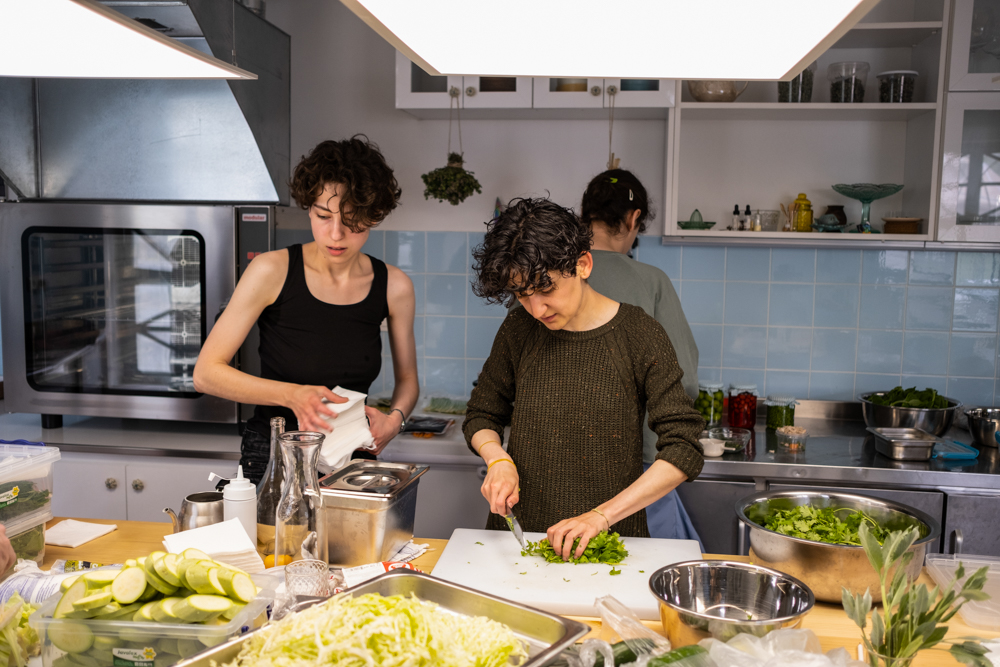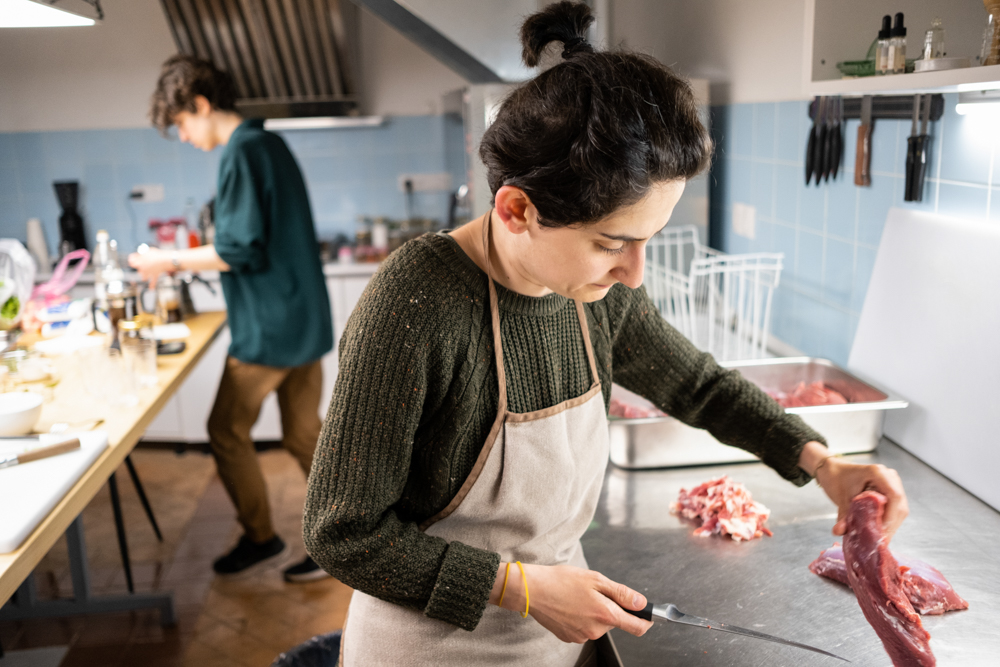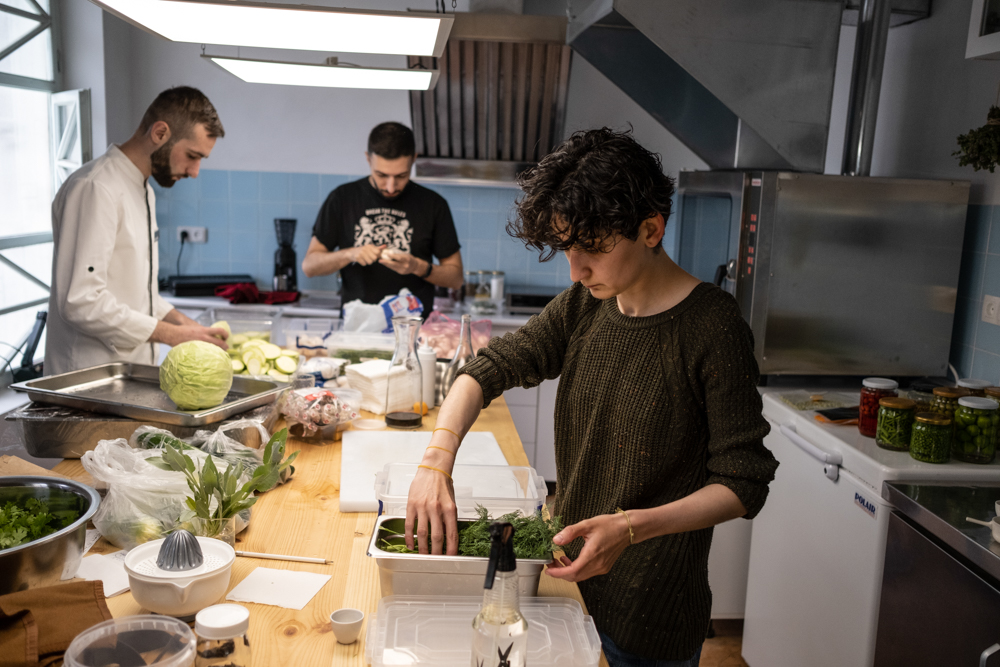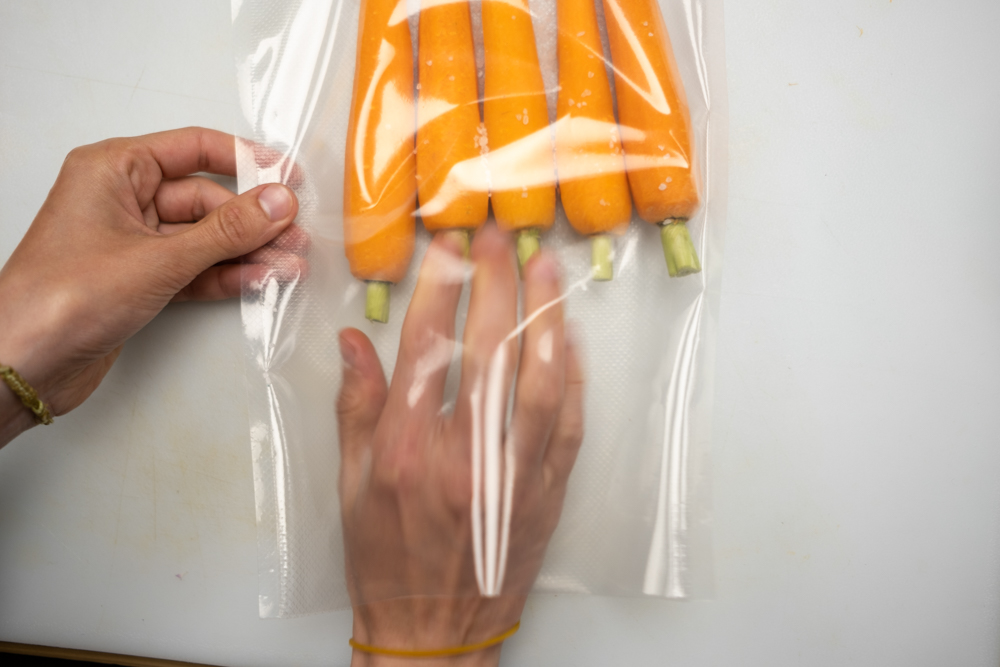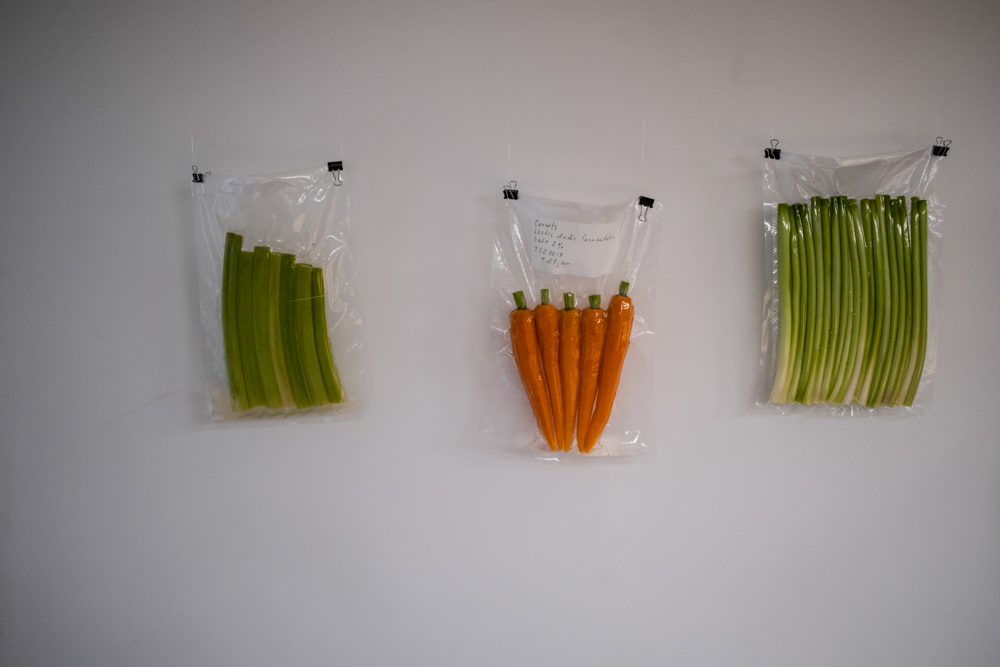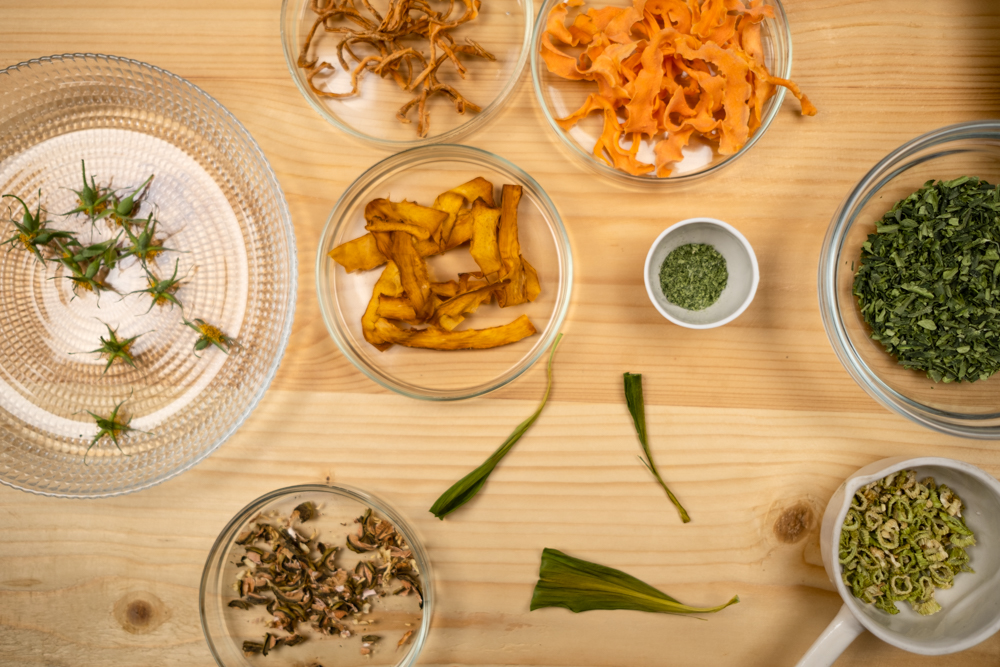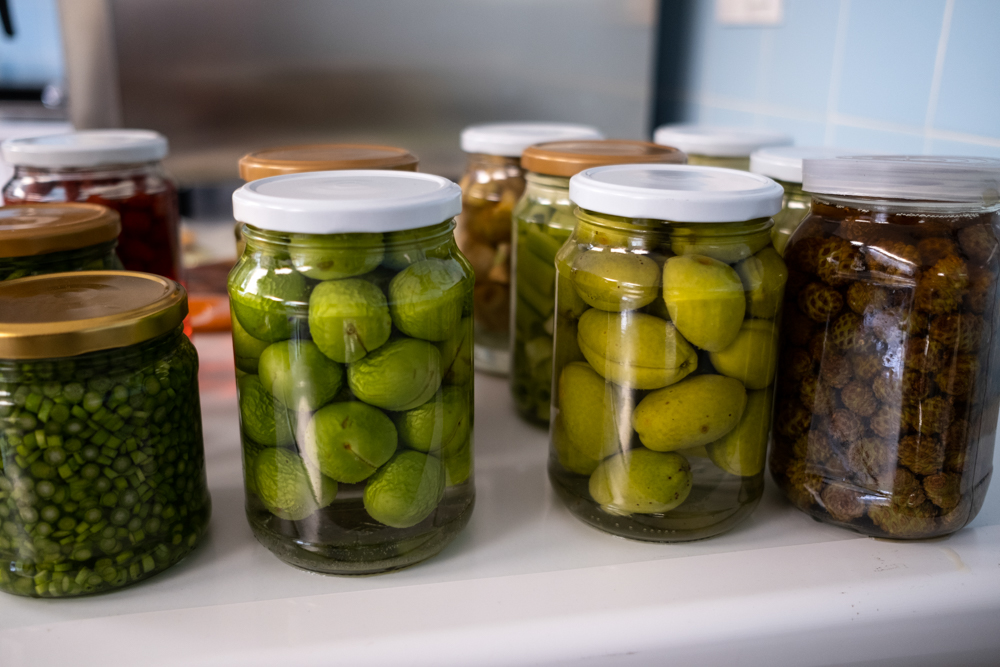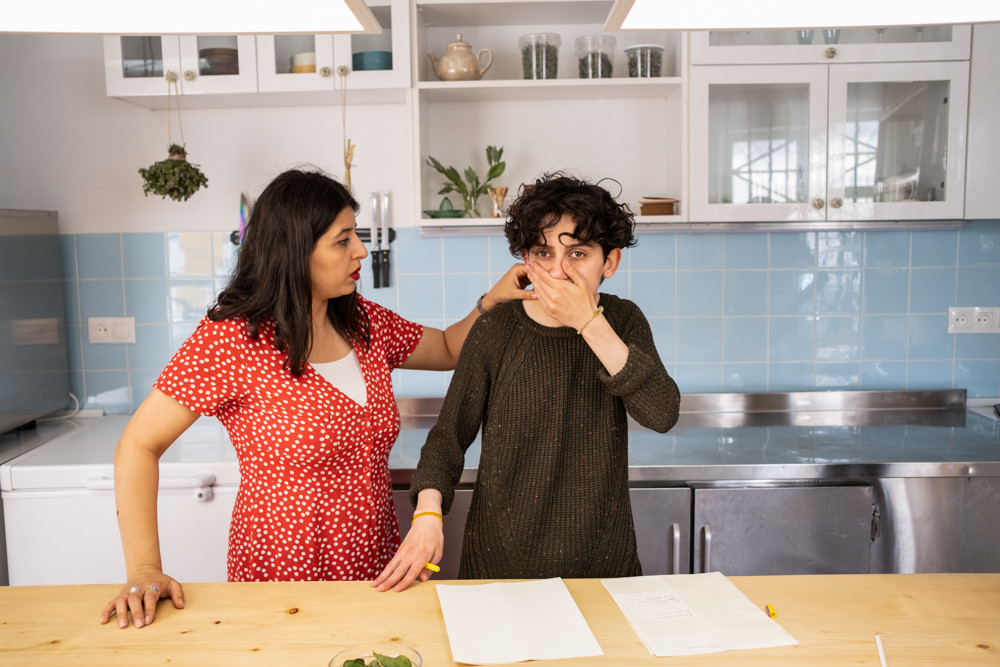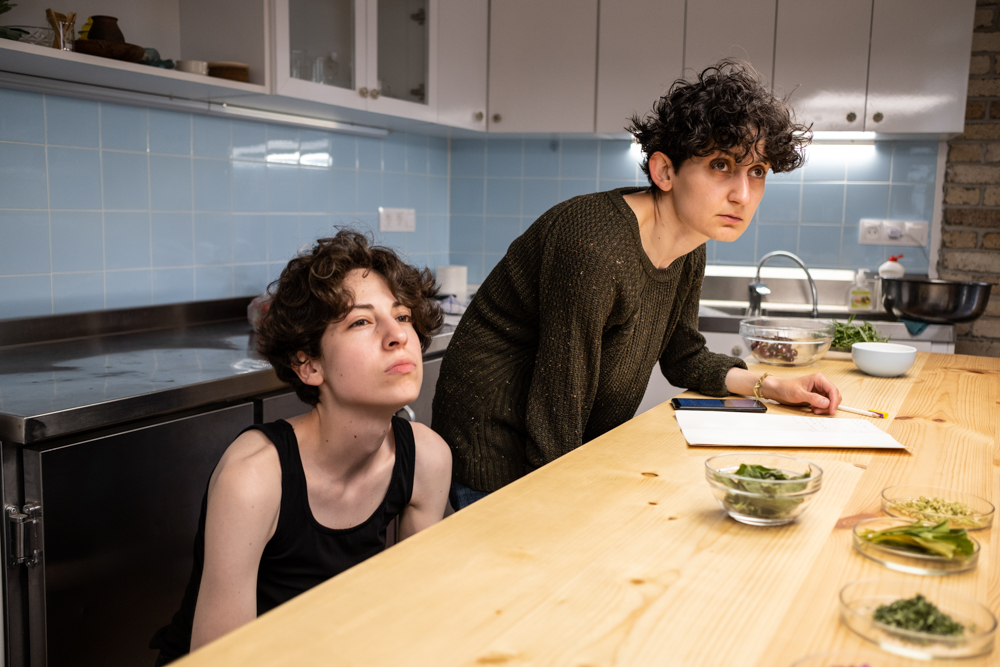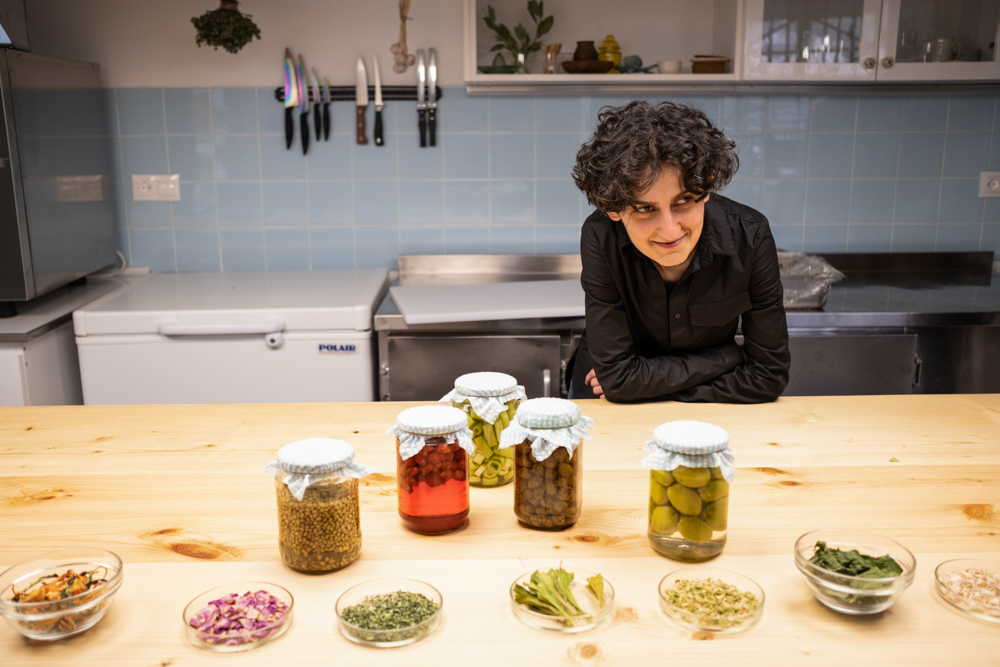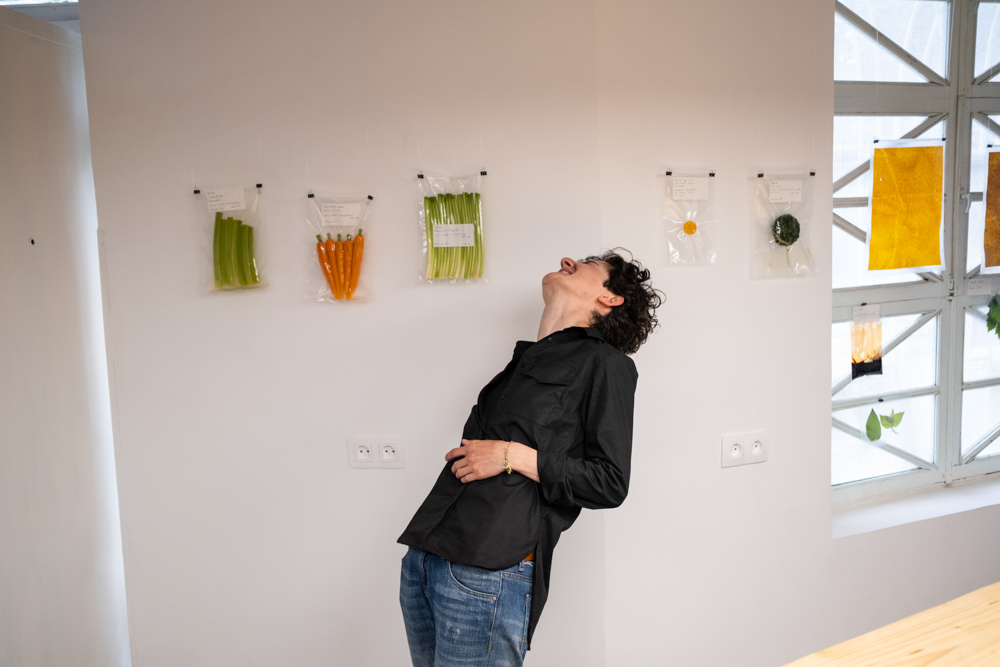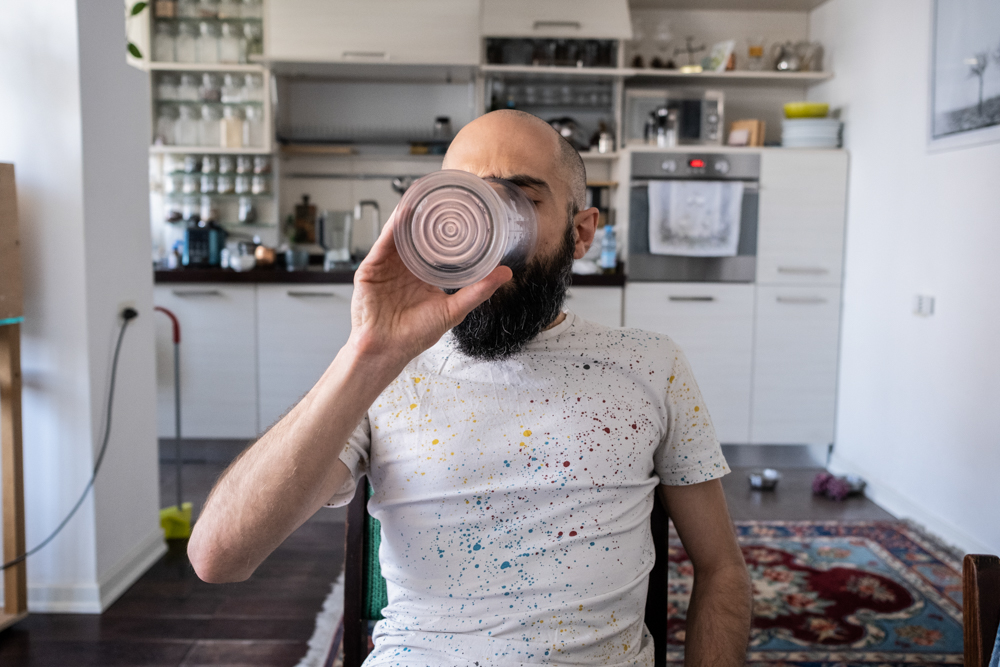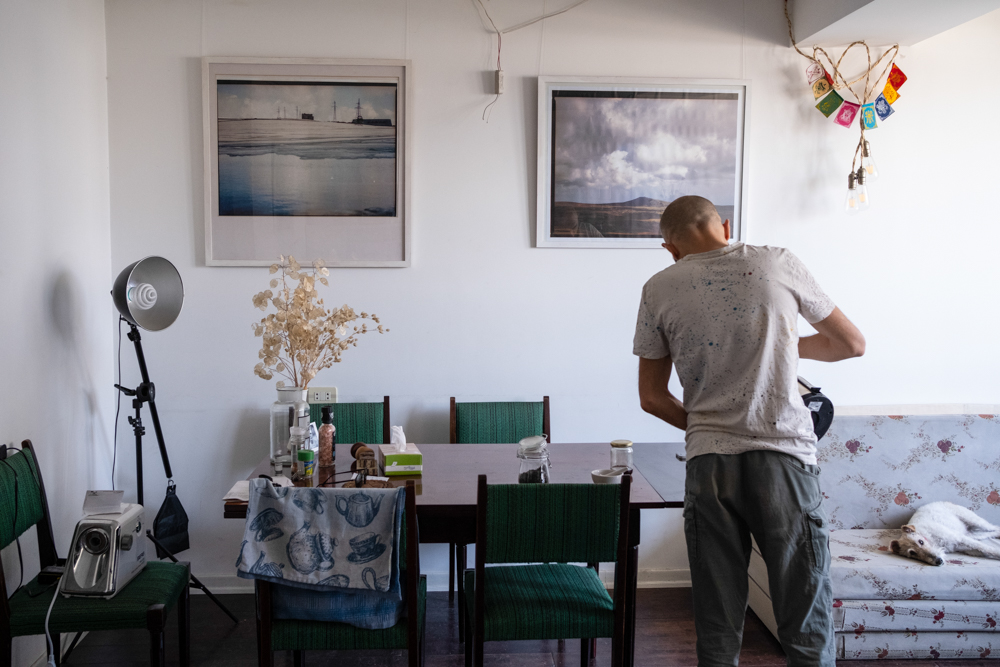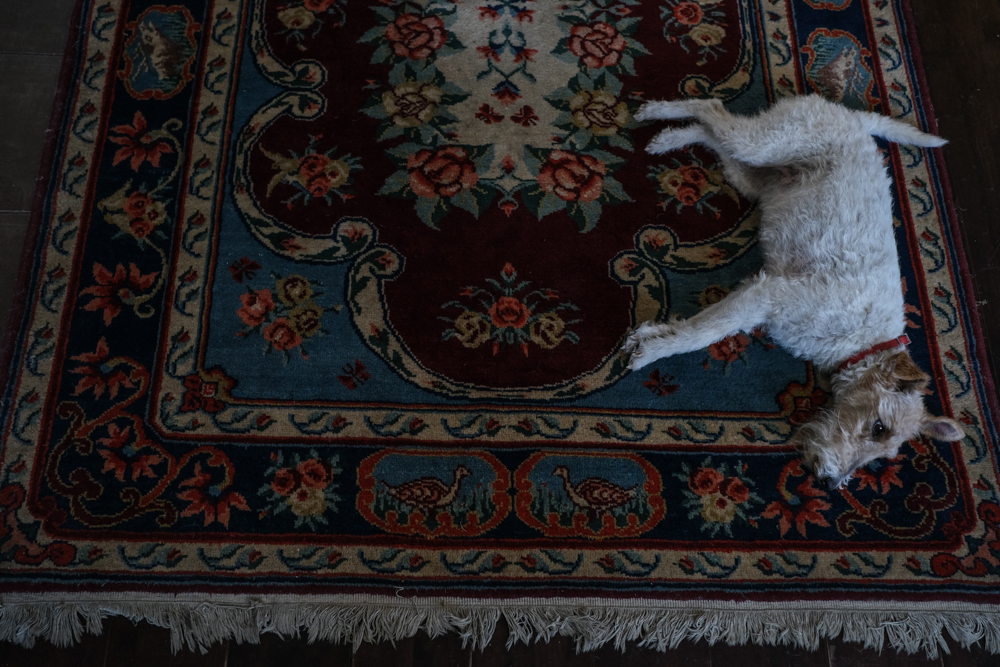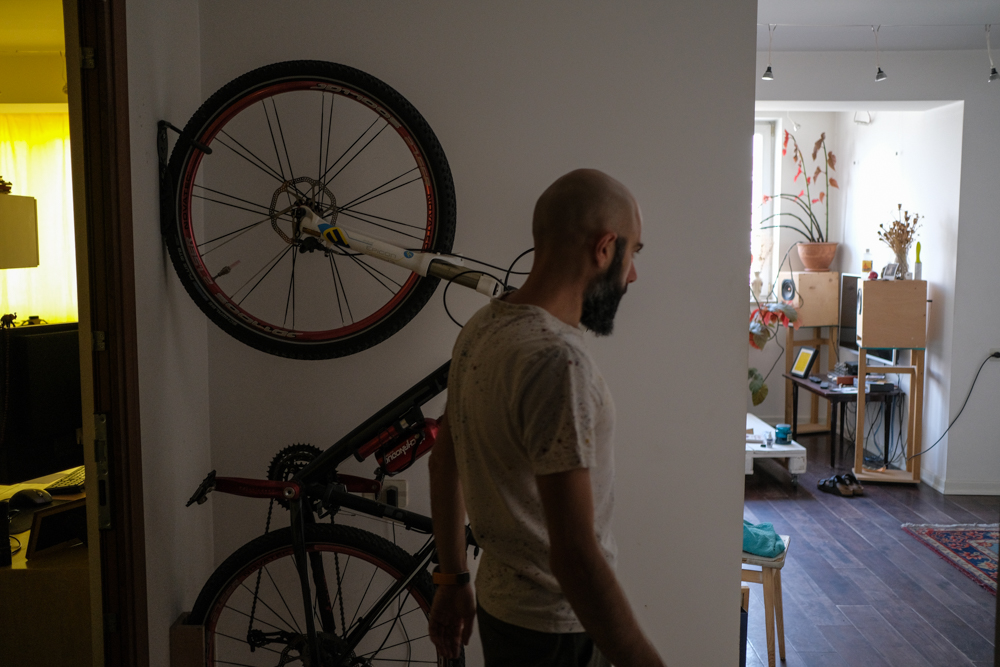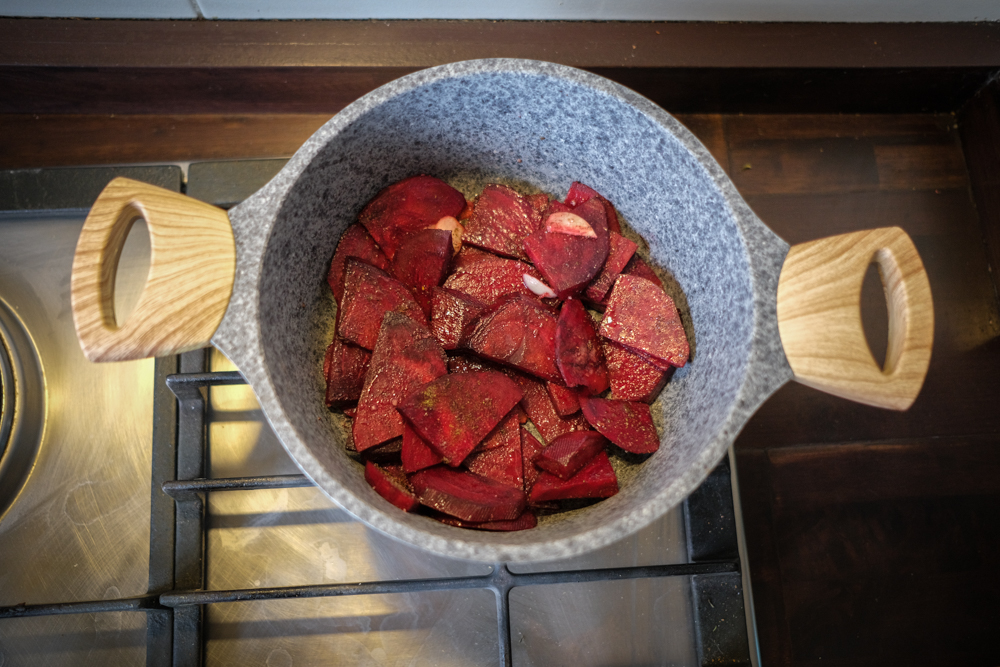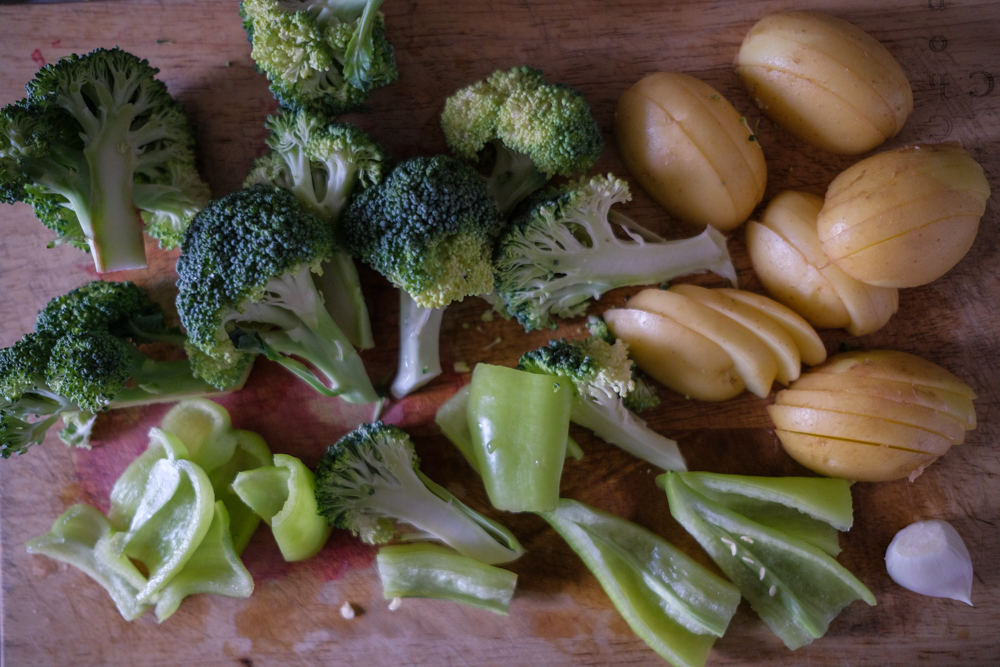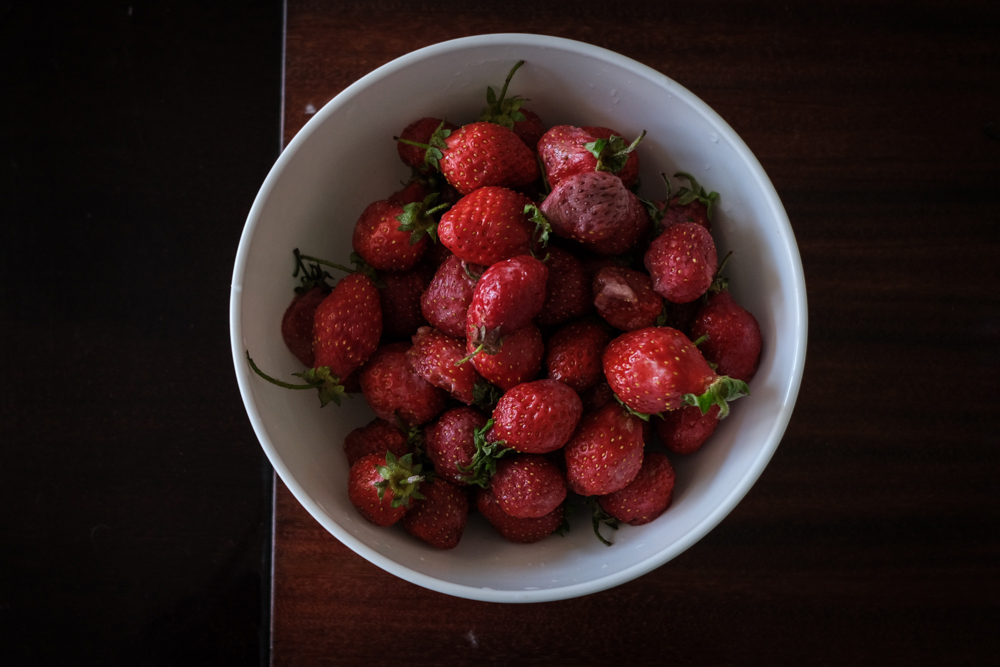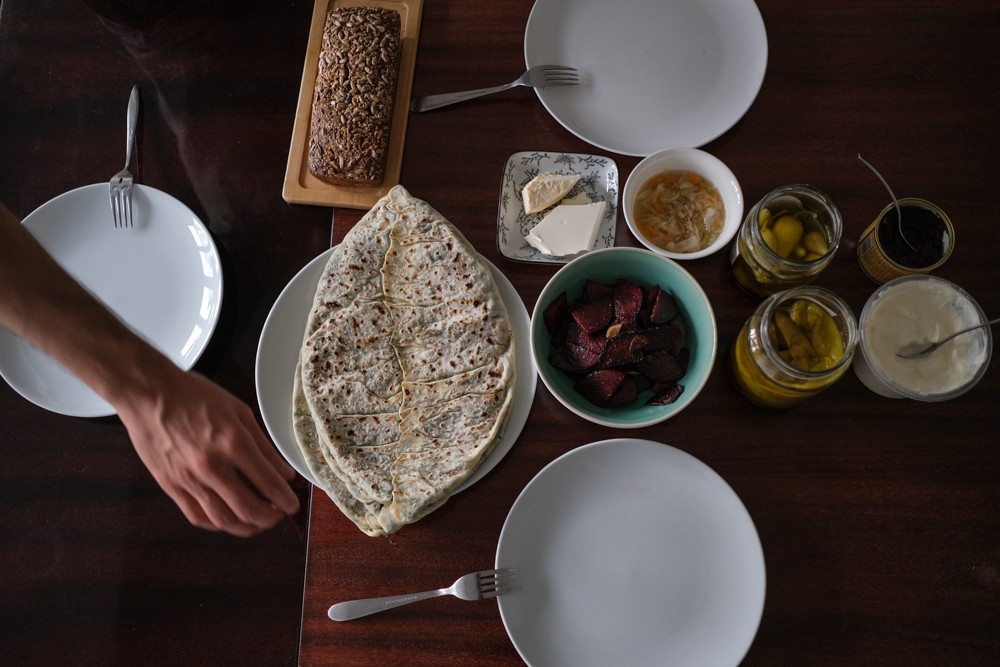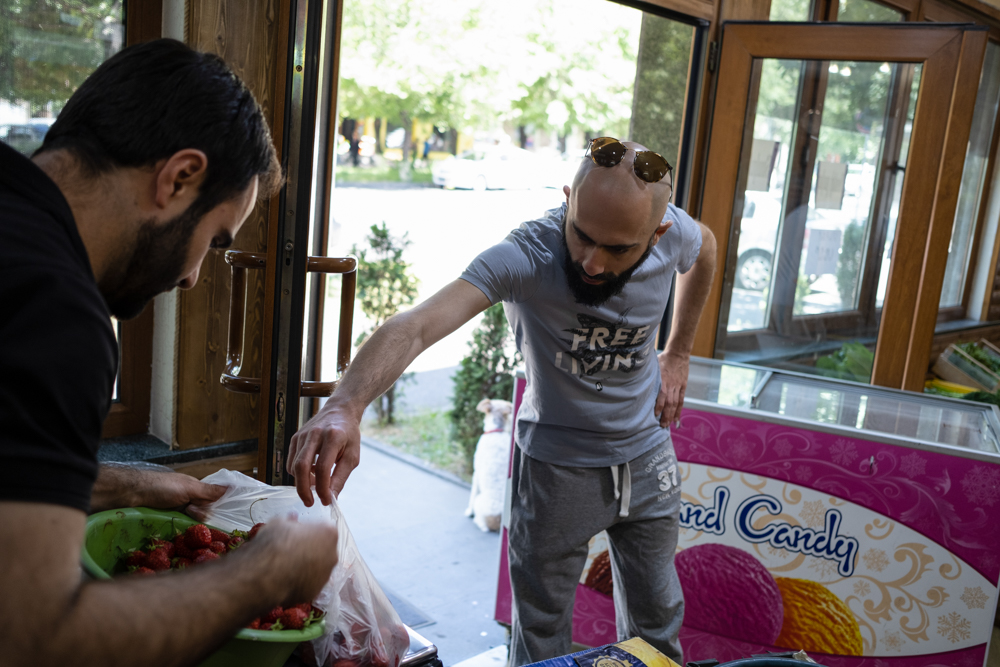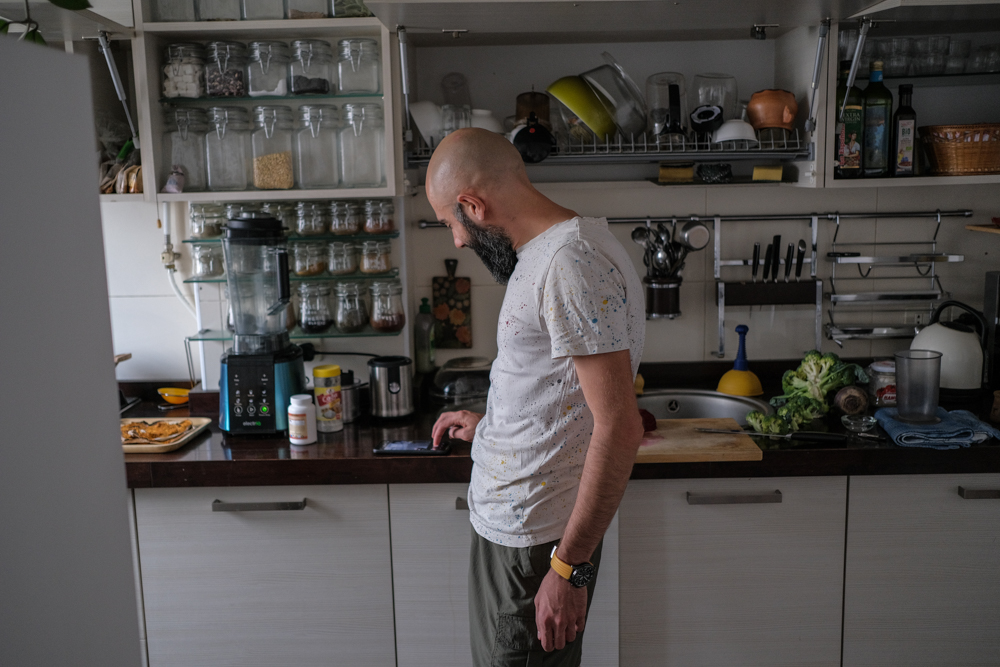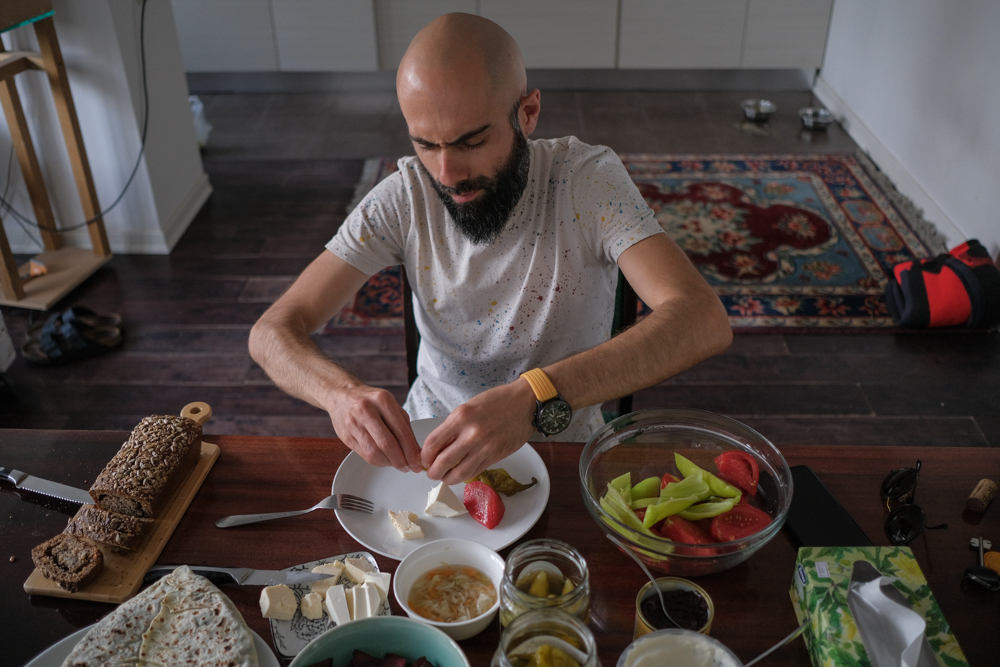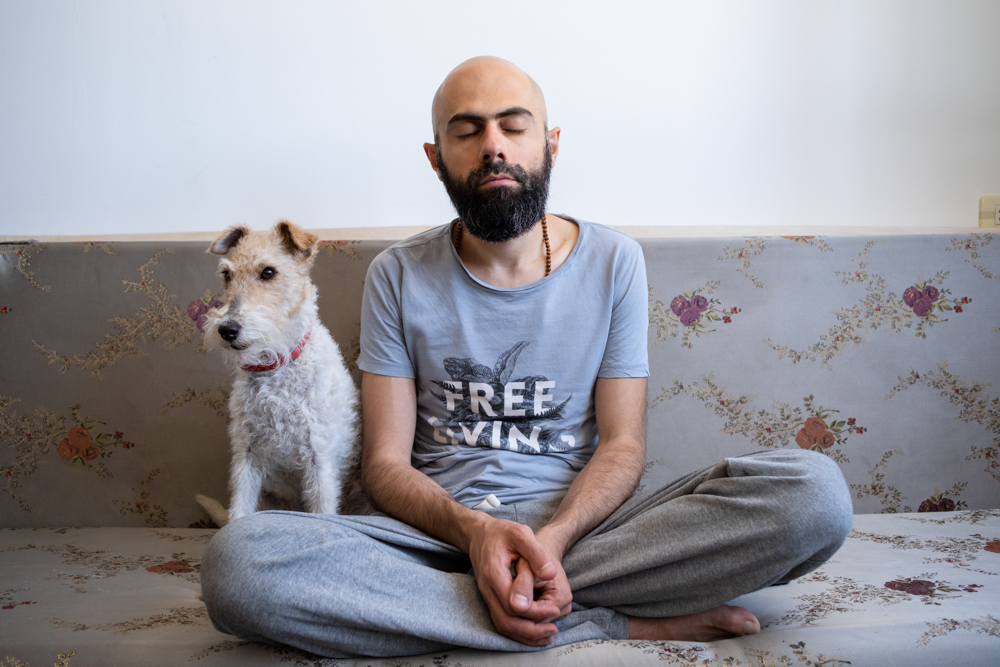For me, choosing food is one of the hardest things, I’ve never been able to fill my basket at the supermarket because I can’t eat food that I know very little about. I grew up in a village and knew everything about what I ate, what seed it was planted from, what water it was watered from, whether it was damaged by hail or not. The yolk of the eggs I ate turned bright yellow in the spring when the chickens ate grass. The chickens ran freely: their meat was sinewy and hard to eat, but my palate is used to those tastes and I search for them. At the market I choose small and imperfect fruits and vegetables, I smell and touch them, ask questions on where and how they are grown. My questions often go unanswered: the vendors don’t care about the issues that concern me. According to the law of the big market, large producers are growing in number, and they have their own standards, based on business interests. Produce is changing dramatically: becoming brightly colored, proportionate, perfect, arranged symmetrically in beautiful packaging in shop windows. And I am beginning to doubt whether a carrot is healthy or not.
Food quality and food hygiene are very important. A bad diet can affect one’s health, self-awareness, and mood.
Today, the main source of purchasing food are supermarkets, grocery stores, and fast food restaurants. The fast pace of our lives forces us to ignore and neglect what ingredients are in that product, how many artificial and chemical materials dangerous for our health it contains.
But around us there are people who eat organic food exclusively. Organic food is a philosophy: not to harm nature, the environment, and be in harmony with it. Fruit that is considered organic is grown through natural means of enriching the soil and doesn’t harm one’s health.
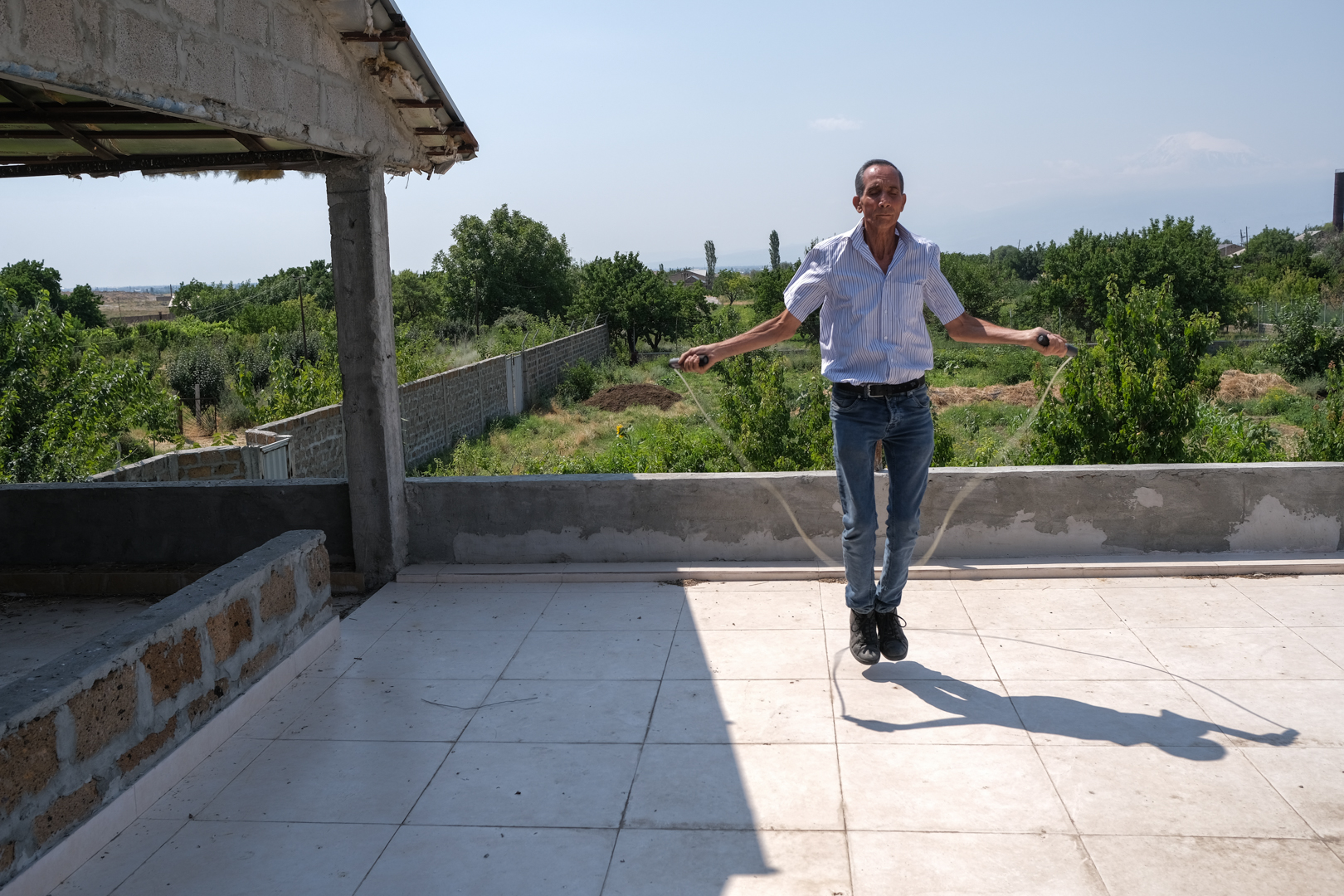
Vanik Keshishi
Vanik Keshishi is 59 years old. He’s been following a raw food diet for 40 years. He has his own fruit and vegetable gardens in Garni, Armavir marz (province), and Iran.
He mainly eats grains and fruit he has planted from natural seeds. To the question that interests me the most, he responds that he feels ill when he eats non-organic food.
“This year, my neighbour harvested four tons of wheat from the same area; I harvested two. If you hold it in your palm, you’ll see in my wheat grains that are not healthy, but they are 1% of the total, and that probably plays a role.
“For example, when a bird comes and eats a few mulberries from the garden, it too has a role, it eats the worms too. We also need its droppings in the garden. It’s the same in the case of wheat: I’m not an expert to say for sure, but the 1% of this wheat that’s not healthy, it’s not a problem. What do they do to save this 1%? They take it, treat it with pesticides, and damage the 99%.”
“Ads for candy teach children from a young age, so that they eat them their whole lives, and today sadly the new generation doesn’t eat natural food. My dried mulberries and walnuts are not shiny or colourful, how can I advertise them?
“Ten raw almonds can be a day’s food, but roasted, no—no matter how much you eat [roasted almonds], you won’t get full. If you give roasted sunflower seeds to a bird, it won’t eat them. By processing living food we’re killing it, then eating it and feeding our body incorrectly.”
He claims he is healthier this way and can’t recall the last time he was sick. Despite his age, he can jump rope 100 times in 20 seconds. What nature provides through his own method of farming he returns to the land as nourishment. He doesn’t use pesticides or fertilizers on his crops, grows exclusively his preserved organic seeds, and various insects provide balance to the garden.
“Sure, a lot of food is produced through genetically modified seeds, but it causes problems: overweight people, illness. And for some reason, we ignore food, how it’s grown and produced. People don’t need a lot of food, they need organic food, and no matter how much bad food there is, it won’t satisfy us.”
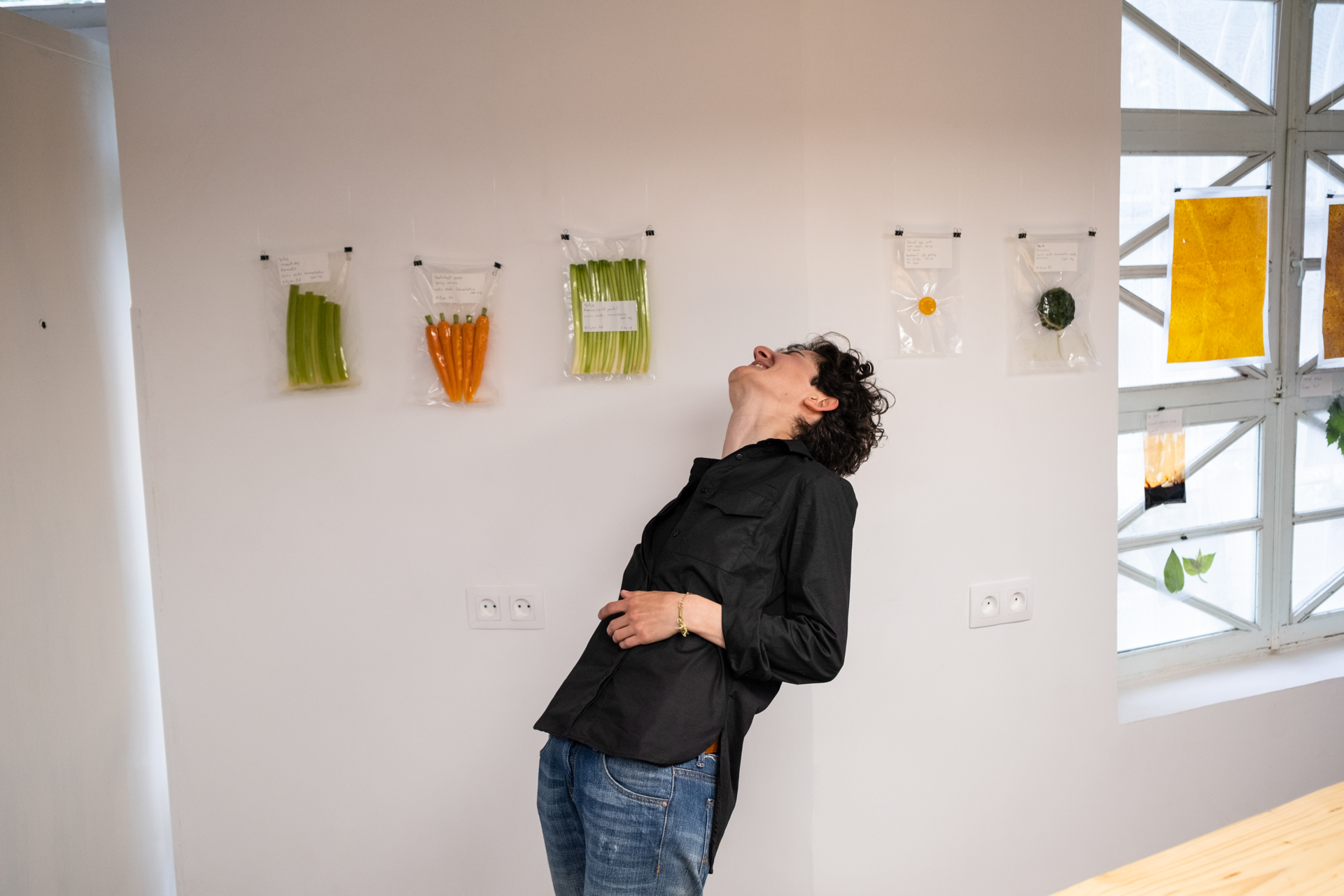
Ani Harutunyan
Ani Harutunyan is 30 years old. An art critic/cook, she is the founder of Arm Food Lab, a “gastro-initiative” in Dilijan. Her aim is to travel in Armenia and Nagorno-Karabakh and learn about traditional cuisine. Ani places importance on knowing the story behind every food item, starting from growing conditions and quality.
“We have many restaurants in Armenia where there are a lot of problems, and the biggest problem is food. Spoilage is becoming catastrophic in the world, and people are thinking up ways so that this much food doesn’t get discarded. We don’t have a cooking school for haute cuisine. Eating culture is really bad nowadays; for instance, what happens at lunchtime? People run from work to a nearby eatery, eat something quickly, talk on the phone, meet someone. And perhaps it’s been preserved somewhat in families, when you sit down for dinner in the evening, have conversation, and eat unhurriedly.”
This experimental kitchen uses exclusively local, seasonal, and fresh produce. The combination allows guests to discover the gastronomic prospects of Armenian food. Ani looks for and finds those people who gather and archive (preserve) wild edible fruit and vegetables in their communities.
“If we [in Armenia] don’t have that variety of beef or steak, then we don’t have to eat steak. It’s not natural for there to be so many steakhouses in Yerevan, leaving aside the fresh food of our region.
“We work seasonally; the produce constantly changes. For example, wild asparagus and wild sorrel [aveluk] lasts three weeks, and 136 varieties of edible mushrooms grow in Dilijan alone. And in all this diversity, artificially grown oyster mushrooms are sold in Dilijan.
“Carrots pulled from the soil prematurely, on the road for a month from Iran, and kept in refrigerators cannot be the same. Global markets are choking small communities and they are unable to sell their produce. We have to create opportunities for them.”
The kitchen-studio operates as an educational research platform on weekdays and as an experimental restaurant on weekends.
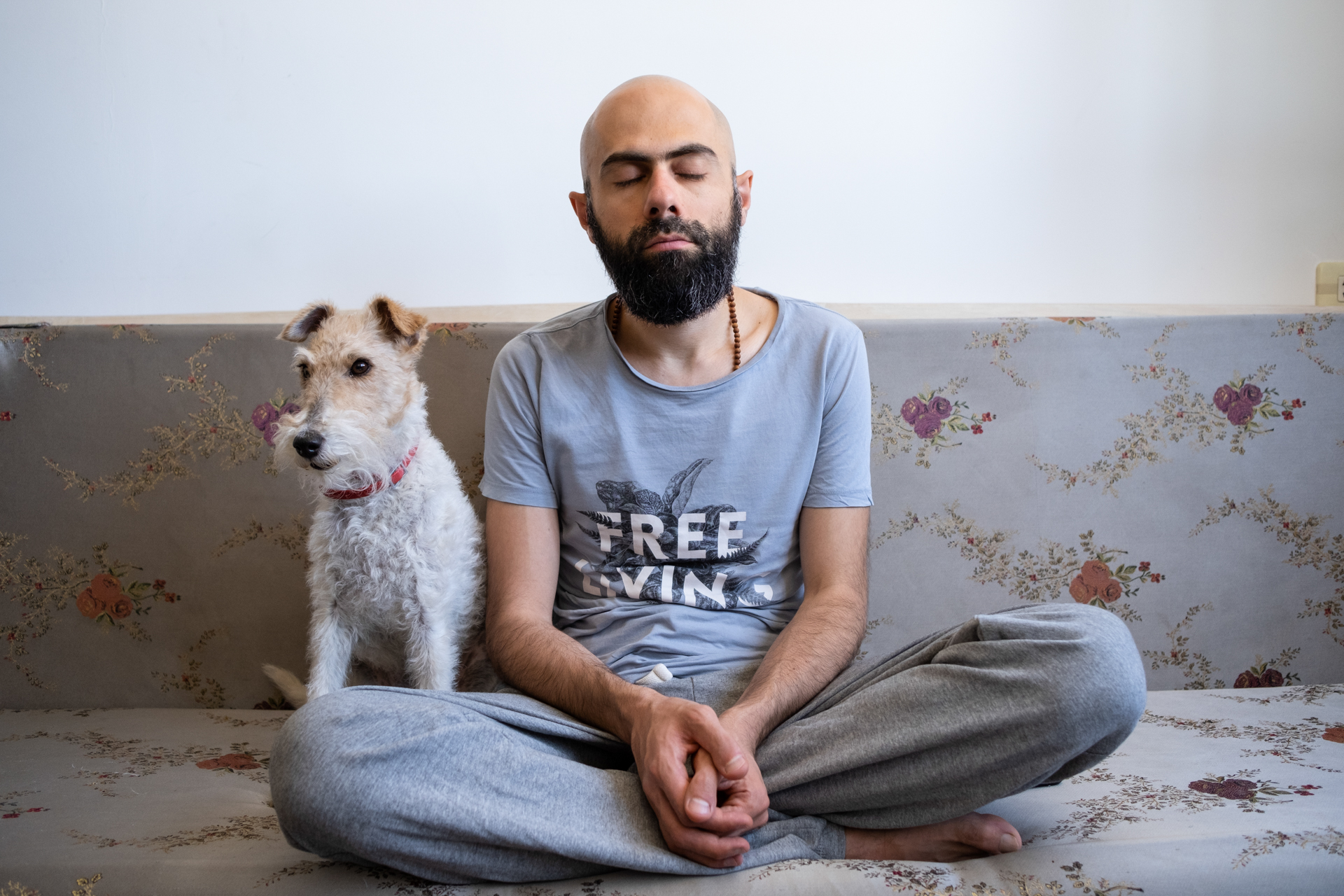
Artur Sakhkalyan
Artur Sakhkalyan is 37 years old. He introduces himself as the founder of the Banjar concept of naturopathy.
Banjar is a portal that helps people change their consciousness about diet, but not only. Its aim is to spread information, based on the principle of eating properly, thinking properly, and not damaging the body. Food is based on consciousness.
“Many doctors smoke and drink regularly; it’s impossible to expect more conscious steps from such doctors. Medicine today is not based on self-improvement, on self-discipline; it’s based on business and drugs. You don’t work on improving yourself, you don’t know how you got sick, every illness has a deeper psychosomatic reason. Vedic teachings help you to explore, to decode, and to write how to cleanse the body, how to eat.
“I choose what to eat, yeah, if in this case, food is the problem. You can eat meat and fish, but why eat these if there’s lots of fresh fruits and vegetables? More than a billion people in the world today are vegetarian; most of India’s population is vegetarian.”
While preparing the meal, Artur gives several pieces of advice on the “don’ts.”
“It’s very wrong to eat protein with sweet, carbohydrates, or cooked food; protein—that is, lentils, chickpeas, kidney beans, nuts, meat, fish, cheese, cottage cheese—must be eaten solely with fresh salads or greens. If we eat it last, after eating different types of food, our digestion is completely disrupted.
“Our body prioritizes protein digestion, which is why the body produces acid; bread must be eaten last. If you’ve eaten bread first and your body has produced a base, and then you consume protein, the body produces acid, and they get mixed with each other. And undigested food begins to decay.”
“Along with all the ‘don’ts’ food should also be delicious,” says Artur. “And if you don’t get pleasure out of it, then it’s no longer healthy.”
“Many vegetarians have eliminated certain foods from their diets, but they don’t enjoy food, and that’s more like a compulsion. The body must be loved, and after eating, it must be appreciated—if that’s not happening, better you eat meat and continue doing what you did.”
Artur reformed his diet through meditation.
“I had allergies, so I fasted, and after that I looked at meat and realized I don’t want to eat it. I experimented: one week I ate meat; the next week, I didn’t. And when I didn’t eat meat, I felt better. But I still ate fish; then I eliminated fish too.
“My dog, Arev, is a vegetarian.”


